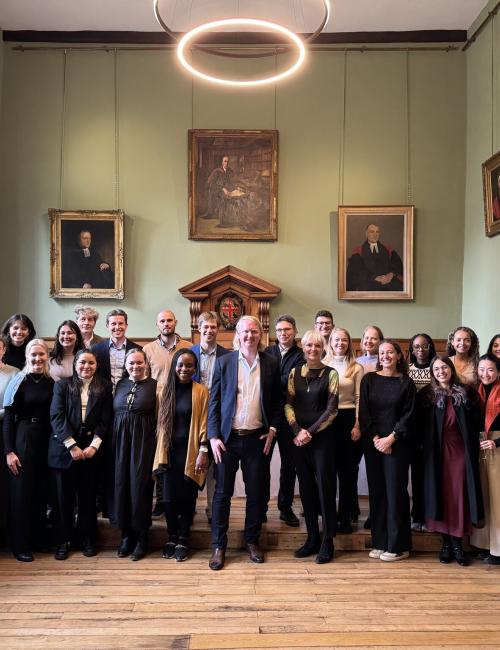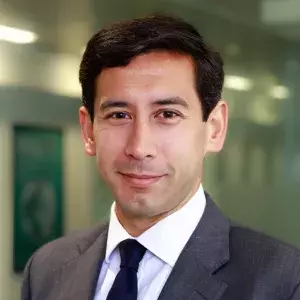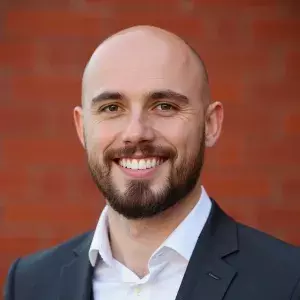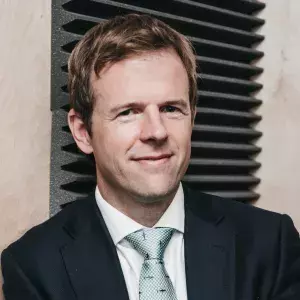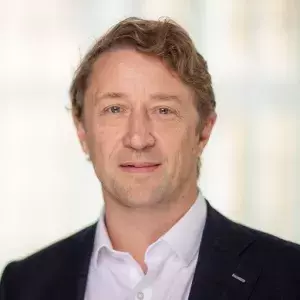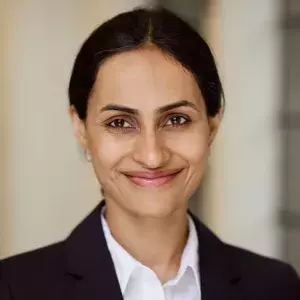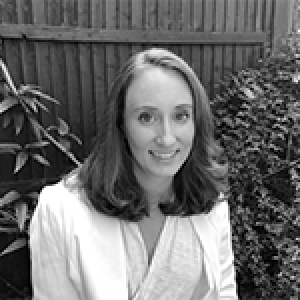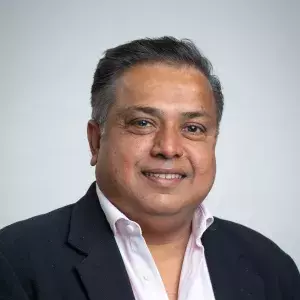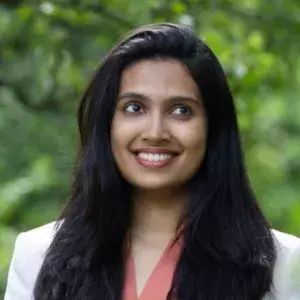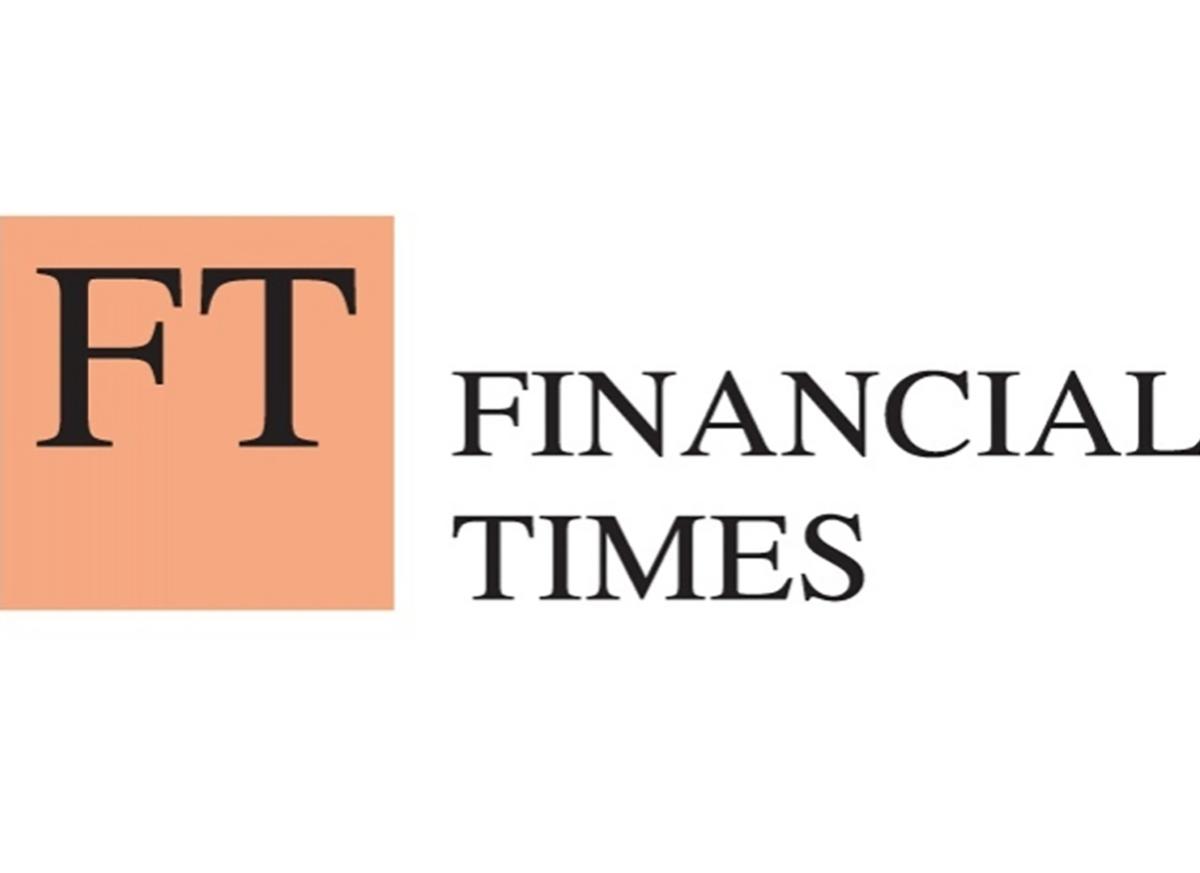MSc in Sustainability, Enterprise and the Environment
In brief
| Fees | |
|---|---|
| Start date | 1 October 2025 |
| Duration | 12 months |
| Time commitment | Full time |
| Location | Oxford |
| Home | £29,510 |
| Overseas | £46,060 |
Deadlines
- Friday 15 November 2024 (12:00 midday UK time): Applications are more likely to receive earlier decisions
- Tuesday 28 January 2025 (12:00 midday UK time): Latest deadline for most Oxford Scholarships & Final deadline for entry
Contact
Dr Laurence Wainwright: msc-coordinator-see@ouce.ox.ac.uk
How to apply
Overview
Our MSc in Sustainability, Enterprise and the Environment (MSc SEE) aims to address two pervasive and unmet challenges of our time: making the transition to a zero-carbon and environmentally sustainable economic model, whilst simultaneously enabling sustainable development for everyone, poor and rich alike.
The course views these challenges through the lenses of finance, economics and enterprise – both public and private – whilst also leveraging the environmental, systems and data sciences. MSc SEE will equip students with the rigorous academic knowledge and applied skills needed to understand and accelerate the transition to a zero-carbon, environmentally sustainable economic model.
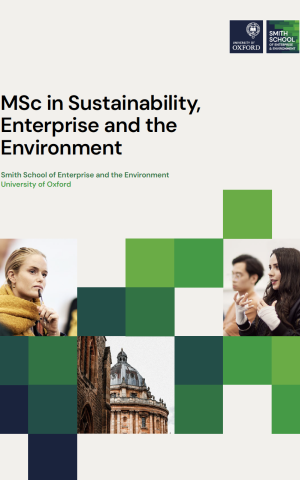
MSc in Sustainability, Enterprise and the Environment
Video transcript
We are pushing too hard against the boundaries of this planet and we're doing so at our own peril. We have to fundamentally shift the way that we think about the interaction between economies, human society and nature. You don't have to start soon, we've got to start now in terms of addressing these challenges, and I think industry is crying out for professionals with training in in these fields, in climate science. You know they want someone who can walk into a room and confidently speak about the physics of climate change, just in the ways they want someone who can understand ESG metrics and be able to interpret those properly. So there's a great need for formal qualifications in these fields and we're really giving that in this programme.
Should I compensate the next generation that I've used up that non-renewable natural capital and the next generation doesn't have it.
We're looking for a range of different applicants – we might have people coming straight from a bachelor's degree coming into the Master’s programme, we may have people with five, seven, ten years of work experience, mid to early career professionals. We're looking for people who are genuinely passionate about all things sustainability and have a real desire to get a rigorous understanding of the natural and social sciences, and to actually use that after they finish the course and go out into the world and lead impactful change towards net-zero sustainable development. We're talking in excess of 500 people interested in the programme, we're taking around 20 places, so it's phenomenally competitive.
Prices are being driven up which is good for a sustainable economy, what about the people who are being subjected to that?
We're looking at these problems through the lens of a finance economics business, we're saying, for better or for worse, the mess that we find ourselves in is a large result of human nature for starters, but also business and markets but paradoxically these mediums and these entities are also the way the way out of this problem. Oxford is a really special place, you can kind of sense it in the air, there's something magical about this place. There's a plethora of activities that go on outside of the classroom here at Oxford whether it be the colleges and the rich experience that college life brings which is the defining part of your experience at the university of Oxford, whether it be a range of leadership activities and opportunities to take on, whether you're captain of a sports team, whether you're in the Oxford Union and you're debating. There's a magical feeling when you step into the library and you think about all those who have been here before, and the remarkable things that they've done, and you almost feel a sense of obligation to manifest your potential in the world to, fulfill the ideas of what this university is about. I’ve worked and studied now at five different universities around the world and I have to say that this is by far the most impressive place that I've seen in terms of the opportunities that are that are available to students. It's an incredibly diverse cohort in the class, we have something like 14 or 15 nationalities represented in the 24 students which is quite phenomenal when you think about it. The diversity of age is very useful, some of the younger ones are able to learn from those who have worked for a couple of years, in some cases many years, and vice versa as well, there's a really rich interchange and you know. I say to the students they'll learn as much from the person sitting next to them as they will from us at the front of the room.
In my lifetime the world population has gone from 3.5 billion to 7.5 billion you can see the environmental consequences of that and the unsustainable conditions that go with it.
We're really passionate in this course to equip students with the leadership skills that they need to go out into the world and lead impactful change towards net-zero sustainable development. Let's actually supplement your in-class experiences of leadership with a whole range of other activities at the University, so when you go out into the world you actually can become a leader, and we take that incredibly seriously. This course is grounded in reality, it's realistic rather than idealistic about the world and I think that appealed to many applicants. It's a really exciting time to be doing this course and you're doing it at the top School of Geography in the world, at one of the world's best universities overall. It's a brand new course. it's exciting, it's innovative, the teaching team is really star-studded. These are the best of the best, we're just hugely excited about this programme and we really do welcome your applications.
Course design
Leaders of enterprise need to be increasingly resilient and able to cope with previously unseen levels of complexity and uncertainty. They will also need to lead with empathy and emotional intelligence, and foster diversity and inclusion through deeper levels of socio-cultural awareness.
The MSEE will provide you with both the academic knowledge and business acumen needed to thrive in the post-pandemic landscape and play a leading role in reorienting the relationship between enterprise, society and the natural environment.
This course has three overarching aims, to:
- Develop a critical understanding of the nature, drivers and trajectories of climate change and economic development
- Examine the role of enterprise and its relationship to environmental and development challenges across a range of risks, technological innovations, investment opportunities and policy responses
- Enable students to integrate and apply their interdisciplinary knowledge, advanced methodological skills and science-policy-enterprise network to foster innovation and scalable progress toward net zero and sustainable development (NZSD).
The MSEE comprises:
- 10 core modules
- Two electives
- A 15,000-word dissertation.
Our approach combines directed teaching, self-regulated learning, structured engagement with enterprise and formal assessment.
Combined programmes
The MSEE can be coupled with an MBA as part of the Oxford 1+1 MBA programme.
Field trips will explore the role of enterprise in tackling the NZSD challenges.
- Induction field trip the week before the start of the course
- Two one-day trips in each of Michaelmas and Hilary Terms
- A week-long field trip at the end of Hilary Term.
During the week-long trip, you will visit a selected region to connect with individual companies and their supply chains in order to bring to life critical concepts and apply your learning.
Field trip costs are included in the course fee, and any specific accessibility issues will be taken into account when planning the visits.
- Three 3-hour unseen written examinations in Trinity Term.
- Two written essays of no more than 4,000 words plus a 150-word abstract on your selected elective subjects.
- The 15,000-word dissertation, due in the first week of September.
An independent and original dissertation is an integral component of the course. We offer a suite of training activities to enable you to execute high quality independent and original research, and introduce you to applied research methods used widely in academic and professional research.
Oxford Terms
Our course is taught through lectures, seminars and workshops, together with field trips, which provide in-depth exploration of key issues. The elective modules are tutorial-style with discussion, in smaller groups.
Teaching is delivered by academic staff from the Smith School and School of Geography and the Environment as well as other departments across the University. In addition, guest lectures from enterprise, such as the Smith School’s Business Fellows, add to the breadth of teaching expertise.
The course is structured across three terms, progressing from broad-based concepts and skills to increased application and engagement:
What is the nature of the NZSD problem? Michaelmas Term focuses on the nature and sources of climate emergency and development challenges, including scientific underpinnings and conceptual building blocks aimed at framing and understanding the problems and trade-offs posed by NZSD.
- Module 1 Climate Change and Net Zero examines the nature, drivers and trajectories of climate change and net zero.
- Module 2 Sustainable Enterprise reviews business as a cause of, but also solution to, the NZSD challenge.
- Module 3 The Economics of Sustainability examines new problems and new solutions.
- Module 4 Spaces, Infrastructure and Technology for NZSD focuses on the disruptive macro trends which are re-shaping economic, social and environmental relationships.
- Module 5 Methods and Data reviews how we measure progress and attribute impact.
- Elective I
- Enterprise Forum
- Business Case Seminars
- Three local fieldtrips including an induction trip to London
How do we best tackle the NZSD problem? Hilary Term focuses on an integrated assessment of potential solutions and pathways, offering applications and solutions to the NZSD conundrum.
- Module 6 Socio-Technical Interventions and Sustainable Law examines how progress on NZSD can be accelerated.
- Module 7 Natural Capital, Markets and Society reviews what balance of state, society and markets can help achieve NZSD.
- Module 8 Water, Inequalities and Social Enterprise examines the interplays between water, inequalities and social enterprise and the best points of leverage.
- Module 9 Sustainable Finance examines how finance can mobilise the capital required for NZSD?
- Module 10 Business Strategy for Sustainability reviews what makes business strategy for sustainability different and how can we assess how well companies are doing. What are the key levers to influence the strategies of companies?
- Elective II
- Enterprise Forum
- Business Case Seminars
- One international fieldtrip: seeing sustainable enterprise in practice.
Trinity term focuses on the implementation of knowledge and solutions.
- Module revision sessions
- Exams
- Dissertations
- Careers, Jobs and post-MSc life
- Enterprise Forum (weeks 1-4)
During Michaelmas and Hilary terms (weeks 1 to 8), a typical study week includes an average of 16 contact hours:
- 2 hours of lectures for each of the five core modules, with optional 30-minute discussion group per core module.
- 2 hours per elective.
- 2 hours for the Enterprise Forum.
- 1.5 hours for the Business Case Seminar.
- 45min for the Class Meeting.
In weeks 0 and -1 of Michaelmas Term, before the teaching term starts, activities comprise college inductions, university inductions, course refreshers, an induction field trip, and occasional guest speaker sessions.
Modules
Module leaders:
- Professor Myles Allen CBE, Director of Oxford Net-Zero Initiative and Professor of Geosystem Science
- Dr Laurence Wainwright, Course Director, MSc SEE; Departmental Lecturer
This foundational module equips students with essential knowledge and skills pertaining to focal questions of MSc SEE: what climate change is; how and why it happens; what to do about it; and how we might get to net-zero emissions as quickly as possible. On completing the course, students will be able to:
- Define and situate the concept of net zero and related terms.
- Understand the nature, drivers and trajectories of climate change and analyse mitigation strategies.
- Analyse the interdependencies between ecological, social and economic systems in getting to net zero.
This module has six lectures, which run for two hours each, commencing in Week Two. The lectures and seminars in this module are as follows:
- Session 1: The Atmospheric Physics of Net Zero.
- Session 2: The Ocean Science of Net Zero
- Session 3: The Carbon Cycle and Net Zero
- Session 4: The Economics of Net Zero
- Session 5: Net Zero beyond CO2
- Session 6: Policies for Net Zero
Module Leader: Dr Laurence Wainwright: Course Director, MSc SEE, and Departmental Lecturer
This foundational module deals with a seminal theme of MSc SEE: enterprise, and the role it plays in causing, and solving, sustainability challenges. Appreciating the interdependence between the planet’s economic, social and ecological systems, the module analyses the great paradox of enterprise: a force has created huge wealth and prosperity but simultaneously caused enormous harm to the natural environment and humanity alike. Students are familiarized with a range of key definitions, concepts and themes that provide essential knowledge in corporate sustainability and skills to become a sustainability professional and lead impactful change toward net-zero and sustainable development.
On completing the course, students will be able to:
- Demonstrate a comprehensive understanding of the role of enterprise as a cause of – but also solution to – social and environmental problems.
- Explain and analyse the ideas of shareholder-primacy vis-à-vis stakeholder views of business, and relate these ideas to the concepts of: corporate sustainability; corporate social responsibility (CSR); Environmental, Social and Governance (ESG); social licence to operate; legitimacy; and business ethics.
- Situate and contextualise enterprise and critically analyse the interrelationship between business, society and nature.
- Understand and apply key concepts pertaining to business structure and strategy
- Understand and apply key concepts pertaining to human behaviour that explain interactions, interests and incentive drives in organisations and society
- Display key skills, communication styles and mindsets associated with being a sustainability professional and leader.
This module takes place in Michaelmas Term, where the focus is on understanding the nature of the net-zero sustainable development (NZSD) conundrum. The course manifests over four 2-hour sessions taking place every second week, starting Week 1 and concluding Week 7. Following each lecture will be an optional discussion group, running for 30 minutes. The sessions in this module are as follows:
- Session 1 (Week 1): Fundamentals of Sustainable Enterprise: People, Purpose, Strategy and Structure
- Session 2 (Week 3): Situating Business in Society and Nature: From Shareholder Value to Stakeholders and Sustainability
- Session 3 (Week 5): Corporate Sustainability Leadership
- Session 4 (Week 7): The Future of Sustainable Enterprise: Shared Value, Collaboration and Systems Change
Module leaders:
- Professor Sam Fankhauser: Professor of Climate Economics and Policy, SSEE
- Dr Sugandha Srivastav: Lecturer and British Academy Postdoctoral Fellow
Guest lecturers:
- Kate Raworth: Senior Visiting Research Associate and Lecturer, Environmental Change Institute
- Dr Stefania Innocenti, Departmental Research Lecturer, SSEE, Brasenose College
Environmental problems are fundamentally also economic problems. Economic decisions are important drivers of environmental degradation, but Economics as a discipline can also contribute to the solutions: Economics is about managing scare resources (financial, but also environmental) and incentivising economic agents (households, firms) to make the right choices. Yet, economic systems and economic thinking have underperformed when it comes to climate change and sustainable development. This module introduces students to economic frameworks, models and tools, which can guide and inform the drive toward sustainability. The module emphasises the importance of the natural environment in economic decision making, the need to account for ecological boundaries, and the systemwide transformation that net zero and sustainable development requires.
At the end of the course students will be able to:
- Articulate environmental and sustainable development challenges in the language of economics.
- Draw insights from different economic frameworks to help solve real-world environmental problems.
- Understand and analyse environmental challenges from the point of view of different economic agents (governments, households, firms).
- Articulate the limitations of current economic systems for addressing net zero and sustainable development.
The module will be taught through a series of lectures, complemented by classroom discussions and interactive exercises across a spectrum of problems relevant to the course. An optional discussion group of 30 minutes duration will follow each lecture. The module is structured into two blocks: Economy-wide Analysis, which provides a macroeconomic perspective (weeks 2-4), and Environmental Policy, which provides a microeconomic perspective (week 6-8). The two blocks are complemented by an introductory overview (week 1) and a guest lecture that offers an alternative perspective (week 5).
The sessions in this module are as follows:
- Week 1: Introduction: Economists and the environment
PART 1: Economy-Wide Analysis
- Week 2: From natural resources to ecosystem services
- Week 3: From economic growth to sustainable development
- Week 4: From partial analysis to systems thinking
An Alternative Perspective
- Week 5: Guest Lecture: Doughnut economics
PART 2: Environmental Policy
- Week 6: Preventing environmental degradation
- Week 7: Changing human behaviour
- Week 8: Incentivising clean innovation
Module leaders:
- Dr Radhika Khosla: Associate Professor, SSEE; Research Director, Oxford India Centre for Sustainable Development, Somerville College. PI, Future of Cooling Programme
- Dr Laurence Wainwright: Course Director, MSc SEE; Departmental Lecturer
Teaching team:
- Dr Alex Money: Director, Innovative Infrastructure Investment Programme; Academic Lead, Food Leadership Programme, SSEE
- Dr Quentin Coutellier: Departmental Lecturer
Module Four takes place in Michaelmas Term, where the focus is on understanding the nature of the net-zero sustainable development (NZSD) conundrum. This module considers the macro forces and drivers that are shaping, disrupting and re-shaping economic, social and environmental relationships, and the implications of ‘glocalization’ for NZSD. The module analyses the past, present and future of the interplay between technology, infrastructure and spaces for net-zero and sustainable development. It plays a critical role in enabling students to understand – and critically analyse – what the nature of the NZSD problem is, so that in Hilary Term they can effectively 1 consider the various solutions.
A number of fundamentally disruptive forces are re-shaping economic, social and environmental relationships at every scale, everywhere. Globalisation – the engine of economic growth for the past 50 years − is grinding to a halt. The relationship between labour and capital is changing across time and space. Supply chains are becoming more intra-regional, while shifting activity from goods to services is disrupting established business models. Simultaneously, urbanisation is shifting global geographies with 80% of the world’s population projected to live in cities by 2050. Most of this growth will be in developing countries. Together, these disruptive forces place additional stresses, and create new opportunities, to achieve net-zero and sustainable development.
In this module we consider the implications of ‘glocalization’ and disruptive marco trends for NZSD, through the lens of infrastructure and technology. We explore changes in the dynamics of globalization and trade, and the new relationships that are emerging between labour and capital. We discuss the intermediating role of infrastructure and how it can be financed, and consider how urban spaces will grow, and can adapt, in response to the challenges and opportunities that these multiple and simultaneous disruptions present.
On completing the course, students will be able to:
- Understand and contextualise disruptive drivers that are re-shaping economic, social and environmental relationships.
- Engage critically with these issues through the lens of infrastructure and technology and debate the implications of globalization and urbanization for NZSD and employment.
- Demonstrate significant understanding of, and effectively apply, constructive and evidenced- based responses to these disruptive drivers.
This course comprises eight seminars of 2 hours, held across eight consecutive weeks in Michaelmas Term:
- Session 1: Disruptive Macro Trends: Framing and Contextualizing
- Session 2: Built Environment and Infrastructure for NZSD 2
- Session 3: Development and Cities of the Future
- Session 4: Capital and Sustainable Development: Principles
- Session 5: Capital and Sustainable Development: Practices
- Session 6: Technological Change, Automation and Sustainable development
- Session 7: Innovation Policy
- Session 8: The Road Ahead: Surviving and Thriving in Turbulent, Uncertain, Novel and Ambiguous Times
Modules leaders:
- Dr Quentin Coutellier: Departmental Lecturer, SSEE
- Dr Laurence Wainwright: Course Director, MSc SEE; Departmental Lecturer
Guest lecturers:
- Dr Amani Maalouf: Senior Research Associate, Oxford Sustainable Finance Group
- Dr Emilie Vrain: Senior Research Associate, Environmental Change Institute
This module takes place in Michaelmas Term where the focus is on understanding the nature of the net-zero sustainable development (NZSD) conundrum.
This module considers methods and data for measuring progress and attributing impact for Net-zero and Sustainable development.
As multilateral commitments like the Paris Agreement and Sustainable Development Goals have turned from agenda setting to implementation, new data and tools are required to design, deliver, monitor, and verify their success. A seismic change in the perception of environmental risk is ongoing, leading to a renaissance of data-driven methods for assessing the risks and impacts of environmental change, and new disclosure requirements for enterprise, such as 1 those articulated by the Taskforce on Climate-Related Financial Disclosure. Meanwhile, the aggregate amount of raw data produced by human civilisation is doubling every two and a half years.
The general profusion of data does not imply that the data required to measure and attribute progress toward − and impact on − sustainable development and a post-carbon economy is readily available. Identifying gaps in the existence and accessibility of such data remains an urgent project. Providing students with a landscape of quantitative and qualitative methods and currently used datasets will help them design and implement more effective research programmes, not only in the short term, but over the span of their full careers.
On completing the course, students will be able to:
- Critically analyse the role of the scientific method of inquiry in the production of knowledge and evaluate how and why scientific data is used by different actors within society.
- Understand and apply qualitative and quantitative methods to measure progress and attribute impact pertaining to NZSD.
- Comprehend the strengths, weaknesses and limitations of different methodological approaches and demonstrate sound judgement in selecting and applying the optimal approach to the given context.
- Apply a critical lens to data and data-driven methods – including biases – and analyse how data is used in decision-making pertaining to NZSD
The module manifests as eight consecutive two-hour sessions over the term, incorporating a mix of information dissemination (i.e. lectures with slides), classroom discussion and debate, and interactive exercises. The sessions in this module are as follows:
- Session 1: Introduction to Methods and Data – Philosophy of Science & Causality
- Session 2: Quantitative Methods 1 – Methods for Policy Analysis
- Session 3: Quantitative Methods 2 – Manipulating and using Big Data in Geography
- Session 4: Quantitative Methods 3 – Life Cycle Assessment
- Session 5: Qualitative Methods 1 – Framing Qualitative Approaches and Collecting Data
- Session 6: Qualitative Methods 2 – Analysing Data
- Session 7: Qualitative Methods 3 – Mixed Methods at the Oxford Living-Lab
- Session 8: Using Methods and Data in Sustainability decision making
Module leaders:
- Professor Thom Wetzer: Associate Professor of Law and Finance; Founding Director, Oxford Sustainable Law Programme, University of Oxford
- Dr Laurence Wainwright: Course Director, MSc SEE; Departmental Lecturer
- Dr Matthew Ives: Associate of the Institute for New Economic Thinking, University of Oxford
Teaching staff:
- Professor Thom Wetzer
- Professor Cameron Hepburn
- Professor Sam Fankhauser
- Dr Stephen Smith
- Dr Benjamin Franta
- Dr Sugandha Srivastav
- Dr Phil Grunewald
- Dr Rupert Stuart-Smith
This module takes place in Hilary Term, where the focus is on how to tackle the net-zero, sustainable development challenge with a focus on achieving rapid decarbonisation. This is done through an integrated analysis of potential solutions and pathways.
Modern human civilization has been built on the energy resources of carbon-intensive fossil fuels, but it is imperative that we transition to a cleaner solution. Indications are that such a transition could lead us towards a world that is cleaner, safer, smarter, more prosperous, and sustainable. However, this transition must happen at pace to avoid the worst catastrophes of climate change, and this will require interventions that can accelerate the necessary change across our social, political, economic, and technological ecosystems.
In this module, we will discuss our experience and understanding of past transitions, and some interventions that might promote and even accelerate the enormous socio-technical response required. The module will focus on developing a richer understanding of our complex socio-technical and legal systems, and how interventions from policy makers, law and business leaders, civil society, and disruptive technologies might accelerate the transition to NZSD, including what the risks and opportunities this transition might create for enterprise.
On completing the module, students will be able to:
- Compare and critique frameworks for contextualising, understanding, and applying the dynamics of socio- technical transitions and interventions that might drive and accelerate change towards net zero sustainable development.
- Engage critically with this goal through the lens of understanding the speed of transition possible in each of the socio-technical frontiers of policymaking, finance, law, behaviours and norms, and technologies, and understand their potential for cascading interaction.
- Identify and constructively stimulate interventions in each of these socio-technical frontiers to drive sustainable decarbonisation, and critically analyse the strengths, weaknesses, and trade-offs of different approaches.
- Engage in benchmarking and comparative exercises, through case studies, to critically analyse both successful and less successful transitions and interventions and derive practical takeaways from their example.
This module manifests as eight consecutive two-hour sessions over the term, incorporating a mix of information dissemination (i.e., lectures with slides), classroom discussion and debate, and interactive exercises (‘practicums’). The sessions in this module are as follows:
- Session 1. Socio-technical transitions and the Net-zero sustainable development challenge
- Session 2. Complexity Science and Sensitive Intervention Points
- Session 3. The Politics of Policymaking
- Session 4. Climate Litigation
- Session 5. Climate Science and (Legal) Accountability
- Session 6. Climate and the Corporation
- Session 7. Technology
- Session 8. Applying sensitive intervention points to the net-zero, sustainable development transition
Module Leader: Professor Sir Dieter Helm CBE Professor of Economic Policy and Official Fellow in Economics, New College, University of Oxford.
Module Seven manifests across three parts. Part one examines the different types of natural capital, how to analyse their system characteristics, how to account for capital maintenance and enhancements and valuation. Part two looks at the role of natural capital in carbon sequestration, the role and limits of offsets and offset markets and their interaction with broader carbon trading. Part three considers how natural capital fits into the sustainable economy, the sustainable consumption path, polluter pays pricing and the provision of public goods. The module illustrates the role of governments and public policy in facilitating the emergence of markets and fostering entrepreneurship across a range of scales and contexts, spanning from local service provision to the global climate commons.
Markets have fostered remarkable prosperity and entrepreneurship, but historic progress has come with a steep cost. Social inequalities and environmental damage have characterised recent decades. GDP growth has failed to adequately recognise, price or mitigate biodiversity loss, carbon emissions, water pollution and allocation, forest degradation and damage, and food insecurity. The module pays particular attention to social justice and in particular the capabilities approach and its relation to natural assets.
This module takes place in Hilary Term, where the focus is on integrated assessment of potential solutions and pathways to the challenges of net-zero and sustainable development.
Learning Objectives:
- To identify the causes and consequences of institutional and market failures to value and manage natural capital
- To understand and compare different models of governing natural capital and identify strengths and weaknesses of different types across a range of contexts
- To learn and apply methods for designing and evaluating natural capital markets and institutions, whilst leveraging and integrating relevant natural science and technical knowledge.
- To examine and debate case studies of valuing and managing natural capital across climate, energy, water, food and biodiversity
- To understand the requirements of the sustainable economy
The module manifests as a mix of information dissemination (i.e. lectures with slides), classroom discussion and debate, and three (optional) discussion groups. This course comprises 6 seminars of 2.5 hours as follows:
- Sessions 1 & 2: Natural Capital Concepts
- Sessions 3 & 4: Natural Capital and Climate Change
- Sessions 5 & 6: The Sustainable Economy
Module Leaders:
- Professor Robert Hope, Professor of Water Policy; Director of the Water Programme, Smith School for Enterprise and the Environment
- Dr Sonia Hoque, Senior Research Associate, School of Geography and the Environment
This module looks at how inequalities in the provision of water for life and livelihoods reproduce deprivation for billions of people every day. Enterprise is both a cause and solution to water inequalities. Unsustainable enterprise pollutes rivers, contributes to avoidable health hazards and intersectional inequalities in urban settlements and rural hinterlands. Enterprise can break these deprivation cycles under the right conditions of governance, finance and institutional design. We explore defining global issues with academic partners and practitioners, considering the extent to which, and conditions under which, enterprise can reduce water inequalities.
This module takes place in Hilary Term, where the focus is on how to tackle the Net-Zero, Sustainable Development challenge. This is done by integrated assessment of potential solutions and pathways.
Learning objectives:
- To introduce social theory and methods related to social inequalities and water risks
- To examine and evaluate methods, concepts and frameworks in the context of water-related enterprise
- To explore processes shaping global and national discourse and debates related to sustainable development goals
- To apply methods, concepts and frameworks to case study material on how water inequalities interact with natural science perspectives and water management practices.
This module takes place across four classes of 2 hours each from Weeks 1 to 4. Following each seminar will be a 40 minute optional discussion group, led by the Teaching Assistant.
Module Leaders:
- Dr Ben Caldecott, Director, Oxford Sustainable Finance Group and the Lombard Odier Associate Professor of Sustainable Finance, University of Oxford
Finance impacts the natural environment directly and indirectly. The environment also directly and indirectly impacts finance and the performance of investments. There is significant and growing interest from policymakers and practitioners in the relationship between the environment, sustainability, and finance.
Aligning finance and investment with sustainability is a necessary condition for tackling the environmental challenges facing humanity. It is also necessary for financial institutions (and policymakers and regulators) to manage both discrete and systematic environment-related risks, as well as capture opportunities associated with the transition to global environmental sustainability.
This module will provide a foundational knowledge in the emerging theories and practice of sustainable finance and investment. It will arm students with sufficient understanding to navigate and critically analyse the key aspects and developments in sustainable finance and investment, as well as how to engage with financial sector stakeholders for collaboration.
Students will engage critically with systems and theories in sustainable finance and investment such as: active ownership, benchmarks and indices, climate finance, disclosure and reporting, divestment, ESG, green use of proceeds instruments, impact investing, public financial institutions, ratings, responsible investment, socially responsible investment, risk premia, stewardship and engagement, stranded assets, sustainability-linked instruments, transition finance, and transition plans. The module will also provide an opportunity for students to consider how to translate knowledge into strategies for effective engagement with the financial sector.
This module takes place in Hilary Term, where the focus is on how to tackle the Net-Zero, Sustainable Development challenge. This is done by integrated assessment of potential solutions and pathways. It provides students with foundational knowledge in the emerging theories and practice of sustainable finance and investment.
Learning Outcomes:
1. To develop sufficient understanding to navigate and critically analyse the key aspects and developments in sustainable finance and investment.
2. To engage critically with systems and theories in sustainable finance and investment.
3. To consider how to translate knowledge into strategies for effective engagement with the financial sector.
This course comprises eight seminars of 2 hours, held across eight consecutive weeks in Hilary Term. Additionally, there will be a voluntary weekly Reading Group immediately following each class.
Each seminar begins with a presentation of key theory and debates. There may be a student-led presentation of a case study assigned before class. For one or two sessions, an external guest speaker may be invited to contribute to the class.
Session listing:
• Session 1: Purpose and Structure of Finance
• Session 2: What is Sustainable Finance?
• Session 3: The Responsible Investment Paradigm
• Session 4: Mobilising capital: “investability” and “bankability”
• Session 5: Financial institutions creating impact
• Session 6: Stewardship and engagement
• Session 7: Stranded Assets and climate-related financial risk
• Session 8: Central banks and financial regulation
Module leaders:
- Dr Aoife Brophy: Departmental Research Lecturer in Innovation and Enterprise
- Dr Laurence Wainwright: Course Director, MSc SEE; Departmental Lecturer
Guest Lecturer: Professor Rafael Ramirez: Professor of Practice, Saïd Business School
Net-zero and the sustainable development challenges facing the world are pushing companies across industries and geographies to rethink core aspects of their strategy. Early responses of business to sustainability challenges were often peripheral and superficial - and as a result did not fundamentally challenge business-as-usual approaches. With the increasing urgency of these challenges, pressure is mounting for companies to re-consider and reorient the relationship between sustainability and strategy.
One of the seminal questions driving strategy is why some companies are more successful than others. In a world where companies - and indeed organizations of all kinds - are facing complex, interconnected environmental and social challenges, what it means to be successful is beginning to shift. In this module, we start by exploring what makes business strategy for sustainability different and why this matters. We then use a mix of academic and practitioner frameworks to unpack how different approaches to strategy can open pathways to harness the potential for business to make a positive contribution society and the environment.
After completing the course, students will be able to:
- Identify and compare approaches of companies to developing strategies for sustainability.
- Analyse and apply a range of frameworks to improve strategic approaches to sustainability in a variety of contexts.
- Formulate and critique arguments about the potential for business to contribute positively to addressing sustainability challenges.
This module comprises eight seminars of 2 hours, held across eight consecutive weeks during Hilary Term. The module combines information dissemination (i.e. lectures with slides), classroom discussion and debate, and interactive exercises. As well as reading for each session, you will be expected to complete preparatory work for some sessions on Canvas.
Following each seminar will be a Discussion Group, where content from the seminar and readings can be discussed in a collaborative and critical manner. These run for 40 minutes, and attendance is optional. The sessions in this module are as follows:
- Session 1: Strategy for net-zero and sustainable development
- Session 2: Business model innovation for sustainability– incumbents
- Session 3: Business model innovation for sustainability – entrepreneurs
- Session 4: Guiding strategy for the long-term
- Session 5: Interpersonal strategy for sustainability
- Session 6: Collaboration for sustainability
- Session 7: Multi-stakeholder collaborations for sustainability
- Session 8: Rethinking business strategy for a sustainable future
Enterprise Forum, and Business Case Seminar Series
Enterprise Forum
The Enterprise Forum consists of weekly sessions, led by expert practitioners discussing different topics related directly to achieving the net-zero and sustainable development (NZSD) challenges.
The defining features of the model are three-fold:
- Purpose and impact driven, guided by clearly defined challenges associated with net-zero and sustainable development
- Demand driven, based on co-production, sustained and strategic dialogue with enterprise partners about the major challenges and needs they face, as well as the ‘demand’ for innovation, knowledge, and skills
- Practical and realistic in terms of small, targeted actions and inputs – by both students and enterprise partners – that can produce outputs.
The forum will also provide exposure across a broad range of actors and enablers within the enterprise system − from start-ups and private organisations to listed companies; from regulators and public organisations to financiers and private equity. By doing this, the Enterprise Forum provides students with the opportunity to put their academic knowledge and skills into context and practice by working on meaningful environmental and social change through enterprise.
The forum will include activities such as development of leadership skills, mentorship with business fellows, case-based learning, guest lectures and seminars on personal effectiveness, and can act as an incubator for dissertation topics. At the same time, the forum enables enterprise to tap into the ideas and innovations of the next generation.
Business Case Seminar Series
The weekly Business Case Seminars typically begin with an introduction to the guest company, highlighting its role and impact in achieving net-zero or addressing climate challenges, followed by a Q&A session. The second part involves students engaging in group discussions to solve a real-world case or set of challenges specific to the company or industry, such as market strategies, technology pivots, fundraising, or competition. Students collaborate, analyze, and present their solutions, which are then compared to the company’s actual decisions and outcomes, fostering practical learning.
Founder in Residence and support for entrepreneurship
In January 2025, SSEE appointed its first Founder in Residence, Dr Alex Money, to nurture sustainability entrepreneurship. The Founder in Residence has a mandate to support students and staff in navigating the journey from developing an idea into a venture.
Under this initiative, students across the Smith School will have unique access to lectures, panel discussions, events and 1:1 sessions. These are curated to provide practical tools and learning opportunities - whether you already have a 'side hustle', an idea, or are just looking for some inspiration.
Visit EnSpire to find out more about the University of Oxford's wider ecosystem of support and opportunities for aspiring entrepreneurs.
Teaching Team
The MSEE is taught by experts from the University of Oxford School of Geography and the Environment, and draws on expertise from across the University, including the Saïd Business School, the Blavatnik School, the Oxford Department of International Development and the Department of Economics.
Teaching Staff at School of Geography and the Environment, University of Oxford
Teaching staff from other departments, University of Oxford
Professor Myles Allen, Head of Atmospheric, Oceanic and Planetary Physics in the Department of Physics, and Professor of Geosystem Science in the School of Geography and the Environment, University of Oxford.
Sir Professor Dieter Helm CBE, Professor of Economic Policy and Official Fellow in Economics, New College, University of Oxford.
Electives
Non-exhaustive list of electives available at the School of Geography and the Environment in 2024-25.
Elective leader: Dr Timothy Hodgetts
This module will appeal to students from across the MSc programmes who are interested in how critical social theories – and particularly human geography – have sought to understand human-animal relations.
The module introduces the sub-discipline of animal geography, which is primarily concerned with how animals’ lives are shaped and spaced by human (and animal) activities and practices. Animal geographies should not be confused with the quantitative scientific fields of biogeography or landscape ecology. Rather, animal geographers draw on resources from social theory and the humanities to investigate: (i) how the lives of nonhuman animals are governed, managed, influenced, or otherwise shaped through human activities (deliberate or not), and (ii) the wider ramifications (political, economic, social, cultural, ethical) of the forms of human-animal relations produced.
As such, animal geography reflects and contributes to the wider ‘animal turn’ evident in social theory in recent decades, with a particular attention to the geographies of human-animal relations. The field is usually pluralized as ‘animal geographies’ to denote the diversity of both the situated contexts of animal life and the concepts and theories deployed to understand those animals’ situations. Students will be able to:
- Identify and evaluate key theoretical approaches from animal geography through which to understand human-animal relations.
- Apply concepts from animal geography to appraise and analyse animal management practices and regimes of animal governance across a variety of sites and situations.
- Explain and synthesize analyses of animal contexts in written academic formats.
This elective module will have weekly sessions spread over 5 weeks (weeks 3 to 7) of Michaelmas term as follows:
- Session 1 – Introduction to Animal Geographies
- Session 2 – Animals in the City
- Session 3 – Animals at Work
- Session 4 – Animals in the Wild
- Session 5 – Knowing Animals
Elective leader: Dr. James Painter
Most people in most countries of the world get their news about scientific and environmental issues, including climate change, from the mainstream media. Despite the rapid increase in the use of social media, television and other traditional media remain used and trusted sources. But climate change science reporting poses a difficult challenge: the science remains complex, incremental and at times uncertain, whereas the media are attracted to certainty, drama, novelty and contrarian views, even though they may be unrepresentative. The recent surge in climate change fuelled extreme weather events around the world has been matched by more volume of coverage in mainstream and discussion on social media. But the relationship between climate change information and public responses is complex and non-linear. There are also important differences in the way climate change is reported. For example, why has climate denialism been prevalent in the media in most Anglo-phone countries (UK, Australia, USA), but not elsewhere? And is the nature of climate denialism in the public sphere changing from questioning the science to questioning the policy responses?
In the seminars, we will focus on:
- The drivers and shapers of media coverage of climate science around the world, and the obstacles to better reporting.
- The dominant themes which journalists use to cover climate change, and the relationship between these media treatments and public attitudes, understanding and engagement.
- The media are often accused of ‘false balance’ by giving too much attention to sceptical viewpoints – what accounts for their presence, and for the differences between countries in their prevalence?
- How online and social media is changing the way people, and particularly younger demographics, consume information about climate change, and interact with it.
This elective module will have weekly sessions spread over 4 weeks (weeks 3 to 6) of Michaelmas term as follows:
- Session 1 – Trends and obstacles in international climate change reporting
- Session 2 – Climate change reporting and public responses
- Session 3 – Balance and bias
- Session 4 – Online and social media
Elective leader: Dr Pete Barbrook-Johnson
Managing the environment and its interaction with social and economic systems is an inherently complex and ‘wicked’ policy problem. The complexity sciences and systems thinking offer a range of promising ways of thinking about and analysing environmental issues, but they can be opaque, vague and impractical. Their combination with the social and policy sciences can help unlock inaction on environmental issues, but this is routinely undervalued or misunderstood. We need new ways of thinking, analysing, and acting in environmental domains, that draw upon usable and co-produced insights from the complexity sciences and system thinking; this elective will equip students with these.
This course will allow students to:
- Understand and discuss the history of complexity and systems thinking and their application to environmental management and policy issues.
- Understand and critique a range of qualitative and quantitative approaches and methods of analysis relevant for environmental management and policy.
- Understand, and develop their own, practical, usable and co-produced thinking, analysis, and insights on the environment.
- Reflect upon the reasons, good and bad, for the dominance of non-complexity and non-systems approaches in some domains of environmental management and policy.
This elective module will have weekly sessions spread over 4 weeks (weeks 3 to 6) of Michaelmas term.
- Session 1 – An introduction to complexity and systems thinking for the environment
- Session 2 – Focus on qualitative and participatory complexity approaches
- Session 3 – Focus on quantitative and simulation approaches
- Session 4 – Complexity and systems in practice
Elective leader: Dr Avidesh Seenath
Coastal systems, in addition to providing a good proxy of overall environmental change, are the most complex and poorly understood environmental system across local, regional, and global scales. More fundamentally, these systems often form the primary socio-economic resource for small island developing states (SIDS) and are sensitive to subtle changes in natural (e.g., sea-level rise) and human (e.g., development) forcings. Arguably, it is SIDS that will be most significantly disadvantaged by future climate change impacts – a knock-on effect of historical human actions in the developed world. Given a future of uncertain climate change coupled with the increasing intensity of observed climate impacts, emerging environmental leaders reading this module will develop an understanding of overall environmental response to natural processes and human actions through a coastal landscape lens. Such an understanding is a critical first step towards being able to inform more robust climate resilience and adaptation strategies.
By the end of this course, students will be able to:
- Understand the science underpinning coastal systems behaviour across space and time.
- Develop and apply behavioural-models for studying short- and long-term coastal behaviour in response to climate related impacts.
- Critically examine and understand the uncertainties in conventional approaches used for studying coastal systems behaviour.
This elective will be delivered through 4 x 2-hr theory (lecture/tutorial/discussion) sessions and 1 x 2-hr self-guided lab, as below:
- Session 1: Coastal geomorphology and morphodynamics
- Session 2: Coastal modelling for systems understanding
- Session 3: On the Bruun Rule suitability for studying coastal response – a self-guided lab
- Session 4: Critical coastal geomorphology I (behavioural models)
- Session 5: Critical coastal geomorphology II (physics-driven and hybrid models)
Elective leader: Dr Nick Banks
Provision of energy services is fundamental to human welfare and consequently modern, affordable and clean energy services are enshrined in UN Sustainability Goals. As we develop desire for energy services is increasing, driven to a significant extent by development and energy access needs in emerging and developing countries, At the same time there is a pressing need to reduce the climate impacts from providing these services: fossil fuel burning is the greatest single contributor to accelerated climate change.
This elective explores issues of energy demand, supply and infrastructure, and examines policies and economic instruments for achieving a lower carbon future.
The tutorials run as four 2-hour sessions and explore energy issues by examining different aspects of the energy system:
- Session 1: Energy demand
- Session 2: Energy supply
- Session 3: Sociology and economics of energy consumption and associated equity issues
- Session 4: Energy policy and governance.
Elective leaders: Dr Monika Zurek and Dr Saher Hasnain
Food systems are in urgent need of transformation. They currently do not provide needed food and nutrition security outcomes while having far-reaching environmental and social impacts. Food security is again a major national and international issue for both science and policy, as just reiterated in the recent UN Food System Summit (23 Sep 2021). This has been driven in recent years by the realization of the need to continue increasing global food supply to feed anticipated world demand, which will be complicated by both climate change and natural resource degradation. At the same time, food systems are also the major driver of environmental degradation and various social changes, while nevertheless providing economic opportunities for millions around the globe. Analysing food security from a “food systems” perspective helps to better understand the complex nature of the needed food system transformation and potential trade-offs between environmental, social and health outcomes that transformation options will entail. How these trade-offs will be shaped and who will benefit or lose along the way currently depends on fragmented policy making processes and skewed power dynamics but are decisive for determining if we will be able to feed an urbanizing global population in a healthy manner without further overstepping planetary boundaries.
In this Elective we will discuss the drivers that influence food and nutrition security and how these interact with Global Environmental Change. Focusing on food systems we will cover (i) the interactions with global environmental change and the options for mitigating deleterious aspects of food system activities; (ii) how climate change and other environmental changes are threatening food security and the limits of adaptation (iii) the notion of more sustainable, healthy diets; (iv) how policy development and resource planning can be helped by discussing them within the context of a range of plausible futures (scenarios), and (v) what to steps to consider for developing viable food system transition pathways.
This elective module will have weekly sessions spread over 5 weeks (weeks 3 to 6) of Michaelmas term as follows:
- Session 1: Food security, food systems and environmental change
- Session 2: Adaption and Mitigation in Food Systems
- Session 3: Scenarios for food system policy development and planning
- Session 4: Operationalizing Food Systems Change
Elective leader: Dr Labib Azzouz
Transportation constitutes a fundamental human activity that is directly and tightly linked to the environmental, economic, and social challenges that our society suffers from. These include rapidly-growing emissions and energy consumption, noise, inequality and inaccessibility, inefficiency and time loss, decelerated economic growth and inefficient land use. These problems are further exacerbated today since advances in transport and communication technologies allow us to travel more frequently and over longer distances. Existing transport infrastructure, policies, and planning focus on automobile users as the main ‘road users’, promoting car dependency and a car-oriented society.
To tackle climate change and other socio-economic challenges, it is crucial to ‘rethink’ the currently-adopted business-as-usual transport planning and to test and deploy new policies to start and accelerate the transition to sustainable transport futures. However, this transition and relevant policies may also encompass new economic, social, and environmental challenges. What are the key policies of the transition to sustainable transport futures? How will these policies impact individuals’ ability to fulfil their needs and desires to travel? How are these policies adopted globally and how does their impact vary? What are the social and economic costs associated with key environmental solutions? Will new and energy-efficient transport technologies promote an induced demand to travel? Which is favored in the society, high mobility or high accessibility? Do EVs represent a ‘silver bullet’ solution? Is it the time to consider transitioning from ‘efficiency’ to ‘sufficiency’?
Together, we will delve into the richness of the transportation research world exploring potential answers to the aforementioned questions. A global benchmarking perspective will be adopted and examples from around the world will be presented and discussed.
The elective will focus on:
- Environmental, social, and economic problems associated with car-oriented society, the need for transition, the definition of a sustainable transport system, and relevant transition policies.
- Policies and solutions to reduce dependency on cars plus those to enable walking, cycling and other forms of micromobility.
- Policies to promote the shift to public transport and factors that affect mode choice and travel decisions. Further, the economic sustainability of mass transport systems will be discussed.
- Transport electrification in terms of need, progress, enablers, opportunities, and challenges. A sustainability evaluation will be applied to EVs.
- The ‘Avoid, Shift, Improve’ policy and the prospects of ‘Efficiency to Sufficiency’ shift.
This elective module will have weekly sessions spread over 5 weeks (weeks 3 to 6) of Michaelmas term as follows:
- Session 1: ‘Un’Sustainable transport and car-oriented cities
- Session 2: Policies 1 & 2: reducing car dependency & enabling walking, cycling, and micromobility
- Session 3: Policies 3 & 4: enabling public transportation & building resilient transport infrastructure
- Session 4: Policies 5 & 6: transport electrification & exploring new technologies’ potential
Elective leader: Professor Catherine MacKenzie
Teaching staff: Professor Catherine MacKenzie (CM)
This elective introduces students to international environmental law. It commences with an overview of the international legal system in the context of environmental protection. It then discusses the history, development, sources and principles of international environmental law and reviews the role of the UN, corporations and NGOs in the context of international environmental protection. Next, it explores international environmental law on:
- Biodiversity;
- Freshwater and oceans;
- Peace, war and the environment (including international environmental crimes, UN peace-keeping and state reconstruction).
Elective Aims:
- to provide an understanding of the sources, principles and institutions of international environmental law;
- to provide knowledge of key legal concepts (e.g. territory, borders, sovereignty) in the context of international environmental issues (e.g. atmosphere and climate, pollution, hazardous waste)
- to explore the implementation and effectiveness of international environmental agreements and the role of international courts;
- to develop in students the capacity to undertake independent legal research using primary and secondary legal sources, including legal databases.
This elective is likely to be of particular interest to students who are seeking a career in the UN, multilateral development banks, international relations, international organizations and international NGOs, and/or to any student who wishes to develop the capacity to read and understand international legal documents.
This elective module will have weekly sessions spread over 5 weeks (weeks 3 to 6) of Michaelmas term as follows:
- Session 1: History, Development, Sources and Principles of Int. Environmental Law
- Session 2: Biodiversity & Deforestation
- Session 3: Water and Oceans
- Session 4: Peace, War and the Environment
Course Instructors:
Dr Benjamin Franta, Associate Professor of Climate Litigation
Dr Rupert Stuart-Smith, Senior Research Associate in Climate Science and the Law
Dr Juliana Velez Echeverri, Research Associate in Climate Litigation
Climate change litigation has expanded rapidly across the world in recent years – both in the number and types of cases – and is coming to play an increasingly influential role in efforts to address global warming. The course examines how climate change is being litigated around the world in response to gaps in climate governance. It also explores how developments in climate science and other scholarly research lay the factual foundations for these cases. Finally, we will consider the systemic impacts of climate-related legal action, including how it is now an important (but often underappreciated) source of financial risk for companies.
Climate litigation is grounded in physical and social science, and this course mirrors this fact. We will introduce key areas in climate science (including climate change mitigation modelling, attribution science and climate change projections), social science, and historical research, and explore how developments in these areas have clarified state and corporate climate obligations and provide a basis for litigation when obligations are not met. Topics we will explore include:
- The role of climate change attribution science and loss and damage assessments in climate litigation
- The role of historical and social science research in climate litigation
- Lawsuits challenging fossil fuel infrastructure and inadequate climate targets of governments and corporations
- Lawsuits challenging greenwashing and misleading advertising related to climate and sustainability
- Lawsuits seeking compensation for damages caused by climate change
- The role of human rights law and international courts in climate litigation
- How climate-related legal action constitutes an important source of financial risk
Cross-cutting themes in this course will include sustainability, social and environmental justice, the social and political dimensions of climate change, and the innovative use of legal tools for climate solutions. The course will be taught at a level suitable for both lawyers and non-lawyers. No prior scientific knowledge is required to take this course.
Through active engagement with the material, students will:
- Develop a broad understanding of current trends and future directions in climate litigation around the world, as well as the evidentiary and scientific bases supporting climate litigation
- Engage critically with the substance of climate litigation strategies and claims, through consideration of environmental and social justice, solutions effectiveness, potential to shift societal norms, and other factors
- Understand how scientific developments can support strategic use of the law by helping to clarify key issues relevant to climate law and policy
- Envision potential futures for climate litigation and climate solutions broadly, including how researchers can contribute to shifting legal and societal paradigms
Six 80-minute classes will be given on a weekly basis (8 hours teaching time total). Each class session will consist of short, interactive lectures on law and science delivered by the course instructors, along with group discussion. Class sessions will also feature non-lecture activities such as guest speakers and small group breakout sessions.
Elective leader: Professor Nathalie Pettorelli
Contributors: Dr Henrike Schulte to Buhne, Dr Jake Williams
During recent decades, humans have dramatically hastened alterations to, and loss of, biodiversity worldwide. Among the remedial actions to the current biodiversity crisis under consideration, the concept of rewilding has emerged as a promising strategy to enhance biodiversity, ecological resilience and ecosystem service delivery. Conservation scientists and policy makers are increasingly using and referring to the term rewilding, with rewilding being hailed as a potentially cost-effective solution to reinstate vegetation succession; restore top-down trophic interactions and predation processes; and improve ecosystem services delivery through the introduction of ecosystem engineers. But rewilding has also attracted criticism from many scientists and from a wide range of stakeholders outside the scientific community, on legal, political, economic and cultural grounds and the concept has yet to gain wide recognition as a scientifically supported option for environmental management. In the seminars, we will focus on:
- Defining rewilding, investigating different definitions and comparing rewilding to other management and conservation approaches.
- Discussing the criticisms levelled at rewilding from different stakeholders, particularly local communities and ecologists/environmentalists.
- Identifying the difficulties of defining rewilding goals and assessing rewilding effectiveness
- Exploring how rewilding fits into current environmental policies at the international and national levels.
This elective module will have weekly sessions spread over 5 weeks (weeks 3 to 6) of Michaelmas term as follows:
- Session 1: What is rewilding?
- Session 2: What is controversial about rewilding?
- Session 3: How do we know if a rewilding project succeeds?
- Session 4: What role can rewilding play in the future?
Module leader: Dr Timothy Howles
How should we value nature? Should we value it for the services it offers, for the way it necessarily frames our social and political lives, or as something sacred that implies responsibilities and obligations towards it? And how do different ways of viewing the natural world and valuing it influence policy decisions?
This elective course will enable critical examination of different ethical frameworks through which social and policy actors value nature, and how these are integrated, debated and negotiated in national and international policy arenas.
The course will adopt an inductive methodology combining theoretical discussion with case-studies. It will present and examine a number of core ethical frameworks, beginning with what might be taken to be the most anthropocentric, then moving through increasing degrees of consideration of the rights of living and non-living beings.
The course does not seek to present an exhaustive account of environmental ethics, but rather to bring greater awareness of some of the moral assumptions and normative positions that influence different social and policy actors. The course will be particularly suited to students with a background and interest in human geography and/or in critical theory approaches.
Participation in this course will equip students with a foundational understanding of some of the key normative frameworks regarding the natural world and their influence on different actors, enabling critical evaluation of social and policy decisions. Students will also deepen their understanding of transdisciplinarity as a method for addressing questions in the field and for engaging in actual policy forums.
Learning outcomes
- Understand key normative ethical frameworks in relation to the valuation of nature, including their historical development to the present.
- Identify and critically examine how these ethical frameworks are held by social and policy actors, and how they influence policy decisions.
- Critically reflect upon the significance and implications of one’s own values and perspectives on human-nature interactions.
- Be equipped to summarize information from a variety of disciplinary sources and frame transdisciplinary arguments.
The course will be divided into four classes, comprising eight hours of teaching time in total:
- Session 1: Contestations over the instrumentalization of nature
- Session 2: Intrinsic valuations of nature beyond the human
- Session 3: Transcendental framings of nature in relation to human motivation and action
- Session 4: student presentations, concluding discussion, review of summative essay titles
Module leaders: Dr Proochista Ariana and Dr Katrina Charles
This module applies a multidisciplinary framework to examine the complex relationships between economic development, environmental degradation and public health. Students will be introduced to various bodies of evidence linking development process, environmental factors and human health, as well as current policy debates on the interrelationship between development, environmental change and health. Key issues regarding (a) the nature of evidence; (b) risk; and (c) governance will be reviewed through case studies at the nexus of development, environment and health.
There is a rapidly growing body of literature examining the relationship between processes of economic development and environmental change, reflecting the progress made in understanding the linkages between environmental health hazards and developmental pathways. There is also abundant literature investigating the health implications of environmental change. However, there is often a lack of effective communication between environmental scientists, public health researchers and development economists. Whereas a number of authors rely largely on economic methods and discourse, others work within the scope of epidemiology and toxicology.
It is estimated that approximately one-quarter of the global disease burden is due to modifiable environmental factors, and that the incidence of 'environmentally-mediated' diseases is much higher in the resource limited contexts than their resource rich counterparts. Moreover, recent studies suggest that new integrative policies are needed to improve the lives of people in the low-income countries and tackle large-scale environmental risks and emerging infectious diseases.
By the end of the module, students will be able to:
- Explain the intersections between development processes, environmental changes and health outcomes.
- Assess the strengths and weaknesses of methodological approaches used to assess such intersections
- Identify contributing policy processes and the policy implications resulting from an understanding of the intersections between development, environment and health.
The course will be divided into six classes:
- Session 1: Introduction
- Session 2: Development
- Session 3: Health
- Session 4: Tutorial 1
- Session 5: Environment
- Session 6: Tutorial 2
Elective leader: Dr Jonathon Turnbull
Guest Lecturer: Dr Oscar Hartman Davies
Digitisation—the process of converting the messy worlds of ‘organic signals’ into ‘digits’ (the zeros and ones constituting binary code)—is now ubiquitous in everyday life. Digital technologies increasingly mediate human-nonhuman relations in diverse settings; including environmental governance, surveillance, and entertainment. In scientific practice, researchers deploy a growing arsenal of digital devices to sense, observe, study, and manage nonhuman life—from the widespread use of GPS animal-tagging to the growth of big data in genomics. Indeed, nature is becoming ever more difficult to distinguish from “the digital tools and media we use to observe, interpret, and manage it” (Jørgensen 2014, 109).
Digitisation produces unique understandings of—and modes of access to—more-than-human worlds, and fundamentally reshapes conservation, environmentalism, and ecological politics. Early critics argued that intensified human-technology relationships both produced and reflected public ecological disengagement. Digitisation, they argued, was driving humanity’s ‘extinction of experience’, leading to increased instances of ‘nature deficit disorder’. In response, ‘reconnecting’ with nature beyond the on-screen encounter emerged as “the mantra for addressing humanity’s severance from the natural world” (Zylstra et al. 2014, 120). But disengagement from nature as a result of digitisation is not a foregone conclusion, and remains under-theorised and under-studied. Adjacently, the optimistic idea that digital technologies can provide new forms of nature reconciliation has emerged among researchers and policymakers. Technofix solutionism is pervasive in discourses concerning the potentials of digital technologies to aid with all sorts of environmental issues. Again, though, such optimism is often unjustified, and the impacts of digital technologies on human-nonhuman relations remain under-theorised and under-studied.
This elective aligns approaches from more-than-human and digital geographies with new media studies and political ecologies to proffer ‘digital ecologies’ as an epistemological approach for making sense of contemporary digital entanglement. Across four lectures and one co-curated exhibition, the course will encourage students to develop a theoretically sophisticated and empirically grounded understanding of digital mediation (including social media) in relation to the environment, nature, and nonhuman world, across diverse case studies. The elective aims to challenge commonly held assumptions that digital technologies separate humans from nature, while also critiquing the technofix solutionism underpinning publicly popular approaches to solving contemporary environmental governance challenges. The course materials and ethos are informed by social theory and empiricism. Students will develop advanced evaluative and conceptual skills for thinking through the role digital technologies play in mediating more-than-human worlds and in reassembling understandings of ‘Nature’ through being attentive to the agency of human and nonhuman actants and the social, political, and economic inequalities provoked or challenged by digital technologies.
Learning Objectives:
- To develop a theoretically sophisticated and empirically grounded understanding of digital mediation in relation to the environment, nature, and nonhuman world
- To examine how digitisation and digital mediation are reassembling the natural
- To challenge notions of ‘the digital’ as immaterial, tracing the unevenly distributed socioenvironmental impacts of the production and sustenance of digital mediation and infrastructures
- To develop critical understandings of the role digital technologies play in environmental governance
- To work collaboratively as a group to exhibit some of the key concepts covered during the course in the final lecture
- To contribute to the development of a nascent, emerging, and exciting body of work inaugurated by several current SoGE geographers by expanding its empirical scope through independent essays
This course will consist of four lectures, each 1.5 hours long, and a final session of 2 hours. To begin, the elective leader will outline the nascent and emerging field of digital ecologies, cultivating sophisticated conceptual understandings of how key geographical themes such as nature, space, place, and the environment are transformed via the process of digitisation. These conceptual understandings will always be underpinned by empirical examples of the digitisation of diverse more-than-human worlds. Findings from ongoing research projects will be presented and students can expect insights from the forefront of this emerging field. Sessions are as follows:
- Session 1: Digital Materialities
- Session 2: Digital Encounters
- Session 3: Digital Governance
- Session 4: Smart Earth
- Session 5: Nature Buffering
Elective leader: Professor Erik Gomez-Baggethun
Environmental degradation and growing inequality have become twin threats to contemporary standards of living. The Intergovernmental Panel on Climate Change (IPCC) and the Intergovernmental Science-Policy Platform on Biodiversity and Ecosystem Services International (IPBES) are calling for transformative changes in economic and financial systems, alerting that gradual change approaches are no longer an option to achieve global sustainability targets. The elective covers theory and frameworks in ecological economics and degrowth, two related fields that promote structural changes in economic and financial systems to live within just and safe ecological limits. Theoretical issues and operational aspects are covered, including limits to growth, ‘weak vs. strong’ sustainability, controversies over framings, valuation, and commodification of nature, decoupling of growth from environmental impacts, green growth vs. post-growth pathways, and key policy proposals promoting prosperity without growth.
The course will be divided into four classes:
- Session 1: Foundations of ecological economics and degrowth
- Session 2: Economic framing and valuation of the environment
- Session 3: The limits to growth debate: Green growth versus degrowth
- Session 4: Key policy proposals to promote prosperity without growth
Elective leader: Dr Nicola Ranger, Programme Leader, Resilience and International Development, Environmental Change Institute and Senior Researcher
How can build global systems that protect people and planet and secure prosperity for all? This elective course responds directly to recent crises, such as COVID-19, the Global Food Price Shocks of 2008-11, the Ukraine crisis and the Global Financial Crisis, and aims to equip graduate students with the analytical and theoretical grounding to understand the linkages between such crises and longer term sustainability and identify solutions in policy, practice and finance. It complements other courses by taking a macro-level perspective and drawing upon the latest evidence and intellectual discourse on complex and compounding crises.
The course is grounded in the science and economics of risk and the theory of resilience and sustainability at different spatial scales and examines the trade-offs between them. It takes as a starting point the science of climate and environmental change at global scales and the linkages to social, ecological, economic and financial systems. It explores the challenges in analysing and predicting such crises and the opportunities through new tools and analytics including complexity science. It then shifts to focus on the solutions, including framing complex crises and environmental change in the context of contemporary policy and debate on issues such as loss and damage, the effectiveness of the global humanitarian architecture, the role of finance and fiscal policies, and suitability of the global multilateral system for global challenges. It considers, for example, the linkages to debt sustainability and the role of debt swaps and sovereign sustainability-linked financial instruments.
The world has seen several major crises in recent years and the risks will increase with climate change and growing environmental damage. Six of the nine Planetary Boundaries identified have been breached. It is important for students to understand the linkages between such crises and longer-term sustainability and be equipped with the analytical and theoretical toolkit to robustly analyse solutions to resilience and sustainability in a more integrated way. This is missing from the current suite of courses and we need the next generation of leaders across all fields to have the toolkit to address such challenges. Taking an integrated approach to resilience and sustainability also provides an important framing to contemporary debates such as loss and damages and the MDB reform agenda and the course aims to equip students will the analytical tools needed to appraise solutions.
The course is structured as four sessions, each with a 45 – 60 minute lecture on the theory followed by a 30 – 45 minute interactive component on the practice, including panel discussions, case studies and scenario games. Sessions are as follows:
- Session 1: The resilient doughnut: the intersection of resilience and sustainability
- Session 2: Building the methodological basis
- Session 3: Enabling resilience and strengthening response – the role of policy and finance
- Session 4: Integrating resilience into the global financial architecture
Module leader: Dr Abrar Chaudhury
Efforts by public, private, and civil actors to design and implement climate initiatives in Low- and Middle-Income Countries (LMICs) [1] often focus heavily on defining, measuring, and governing these efforts. However, surprisingly little attention is given to how these initiatives are organised and executed on the ground. This elective begins with a broad overview of global climate change landscape and plans under the formal climate negotiations, exploring how these translate into country-level actions such as Nationally Determined Contributions (NDCs) and National Adaptation Plans (NAPs).
The course adopts a multi-actor and multi-level perspective, rooted in organisational and network theories, to analyse climate change initiatives. It examines the spectrum of climate funding options and the associated challenges, diving into what gets funded and the underlying reasons. The elective concludes with an interactive, robust planning exercise designed to consolidate insights from the sessions.
Using case studies from emerging countries, the elective investigates how various actors—including governments, private sector, NGOs, funders, and academia—collaborate across multiple levels, from national policy frameworks to on-the-ground implementation, to shape climate change efforts.
The course is organized into five sessions as outlined below:
- Session 1: Global and National Climate Programmes
- Session 2: Grand Challenges - Multi-actor and Multi-scale Approach
- Session 3: Organisational and Network Dimensions of Climate Action
- Session 4: Funding Climate Initiatives – The debates on climate finance?
- Session 5: Robust Planning Exercise
Elective leader: Dr Jesús Aguirre Gutiérrez
Remote Sensing (RS) is the science of acquiring information about the Earth’s physical, chemical, and biological systems without direct physical contact. It utilizes sensors that measure electromagnetic radiation interacting with land, oceans, and the atmosphere, as well as those capable of measuring the structural properties of objects on the ground. RS is applied across a wide range of fields, including forestry, agriculture, geology, hydrology, archaeology, meteorology, oceanography, glaciology, and many others.
The history of remote sensing spans nearly 200 years, beginning with the first photographs of landscapes captured using balloons, kites, and even pigeons. With rapid scientific advancements, its global utilization became significant in the 1970s. This era saw the development of Earth-orbiting satellites and the establishment of space agency programs, which began providing data critical for research and development. Today, many commercial companies operate satellite constellations, and the combined data from public and private sources achieves near-global coverage with hourly updates.
This is an introductory course. In the course we will explore recent advancements in spectral and LiDAR (light detecting and ranging) remote sensing technologies while providing an overview of their applications. It begins by introducing spatial data analysis using Geographic Information Systems (GIS) and progresses to working with spectral and LiDAR data.
The course starts with a general lecture that provides examples of how remote sensing can be used to study the biosphere, with a particular focus on the responses of tropical forests to environmental changes. Each session includes a lecture followed by hands-on remote sensing analyses conducted using the R computing platform. Students will learn about the origins of remote sensing data, key satellites in Earth’s orbit, and reliable sources for obtaining such data. Ample opportunities will be provided to work with spectral and LiDAR data, applying image analysis techniques in practical scenarios.
The course also includes detailed discussions on environmental applications during the sessions, offering students practical experience in using Earth observation data. The course is organized into four sessions as outlined below:
- Session 1: Introduction to Ecological Remote Sensing
- Session 2: Spectral remote sensing
- Session 3: LiDAR vegetation structure remote sensing
- Session 4: Application of spectral and Remote Sensing to understand vegetation status in tropical forest ecosystem
Elective leader: Dr Giulio Boccaletti
Many students who enter the workforce as analysts or aim for a career as executives will be asked to develop or evaluate sustainability strategy. The aim of the elective is to give students a real-world, experience-based sense of what strategy is in sustainability and what processes are used to develop it.
For centuries, strategy was the purview of military leaders. In the last century, competitive strategy became integral to corporate language. Now, the tools of strategy have been co-opted for sustainability. “Sustainability strategy” is keeping most organizations busy, both for- and not-for-profit. Chief Sustainability Officers are being hired everywhere, with the mandate to define a sustainability approach for businesses and institutions.
For those who believe their primary charge is to create shareholder value, sustainability strategy is about adjusting business models to expected regulatory constraints, to climate proof assets, to seek opportunities and protect value. For others, those whose role is to obtain measurable results on the planet through a broad, stakeholder field, strategy is about corralling resources to have impact. For some—still very few—it is about both.
A strategy is not a plan. Strategy is about the choices that come before the plan. It is about choosing a conduct in a particular context for the pursuit of a long-term goal. The art of good strategy comes from skill in selecting the right goals, understanding which context matters, and generating realistic options, conditional on that context. But what constitutes good strategy for an organization wrestling with sustainability? When does strategy work? Why does it fail? How is sustainability strategy different—if it is—from traditional strategy?
Students choosing this elective will tackle these and other questions related to sustainability strategy. They will understand the tools of strategy and develop critical skills in designing for sustainability. They will examine real-world examples in highly interactive, facilitated sessions where they will work as a team, critiquing ideas, generating counterfactuals, proposing options, and taking decisions. They will be challenged to think on their feet and work through quantitative and qualitative problems during the sessions.
Learning Objectives:
- Understand the basic process of strategy development and how to apply its principal frameworks to sustainability problems
- Critique strategy and learn from errors, mistakes, and failures, forming judgements about what good and bad strategies are
- Learn how to discuss and examine strategy as a team and experience some facilitation techniques to bring a team to a decision.
- Apply what they learn to a real-world problem of their choosing, producing an executive memo
The course is organized into four sessions as outlined below:
- Session 1: Defining the “what”
- Session 2: Context Matters
- Session 3: Recipes for success
- Session 4: Bringing it all together
Elective leader: Professor Sam Fankhauser
Climate change has been described as the “ultimate market failure”. Addressing the problem requires a lot of policy intervention and deep changes to the way modern economies are run. It is useful therefore to study climate change through the lens of economics and public policy. Wrong economic thinking is a big part of the climate problem, but the right economic thinking is also a big part of the solution. The purpose of this elective is to introduce students to climate change as a problem of both environmental policy and economic policy. The elective will allow students to:
- Develop familiarity with some of the main debates in climate change economics and policy.
- Develop a general understanding of some of the key policy tools and concepts economists have put forward to address climate change.
- Be able to apply economic thinking to all aspects of the current debate on climate change and climate change policy.
The course features a mixture of interactive lectures and guest talks. Students are expected to participate actively during the lectures and engage with guests. The elective consists of four two-hour sessions. Each session features an introductory lecture by Prof Fankhauser, followed by a guest talk. The four sessions do not combine to offer a complete course in climate change economics. Rather, they are a series of self-standing vignettes, each highlighting a different policy aspects of the climate change problem. This offer students the opportunity to engage with some of the most prominent topical questions in climate change economics and policy.
The course is organized into four sessions as outlined below:
- Session 1: Net zero emissions
- Session 2: Climate policy and governance
- Session 3: Carbon pricing
- Session 4: Climate resilience and adaptation
Elective leader: Mohammad Farhadinia, DPhil, Department of Biology, Oxford, and University of Kent
Dr. Mohammad Farhadinia is a former medical student who transitioned into a conservation biologist. For more than two decades, he has conducted extensive multidisciplinary research on the behavioural ecology and conservation biology of large carnivores, drawing on his training in both natural and social sciences. In 2018, he completed his DPhil at the University of Oxford and subsequently joined the Oxford Martin School. At present, he divides his time as a research fellow in Oxford’s Department of Biology and as a lecturer in conservation science at the University of Kent’s School of Anthropology and Conservation. Before embarking on his academic career, he worked with UNDP and UNEP. He is a board member of the Society for Conservation Biology (SCB) Asia, as well as the co-chair of the IUCN-affiliated Persian Leopard Working Group. Currently, his research is honed on understanding how animals adapt cognitively to new environmental landscapes within rewilding initiatives. The objective is to unravel how animals respond to unfamiliar environments.
Conservation measures are often limited by human-made administrative boundaries which do not account for the transboundary ranges of different species. Worldwide, more than half of terrestrial species and 21% of threatened species of amphibians, birds and mammals have their geographic range spread across more than one international border. With each country having different wildlife protection laws and regulations, it is challenging to conserve transboundary species. Additionally, the impact of climate and land-use change could alter species habitat which transcends country borders.
In this course, through a series of lectures by several key experts in the field, from academia and policy, students will learn the key concepts of the transboundary conservation, challenges and opportunities, relevant international law and policy along with several contexts from different continents. This course will teach students about concepts, providing them with real world cases and finally empowering them to develop a brief plan in the field.
At the end of this module, you should be able to:
- Define key concepts of transboundary conservation
- Identify international law and policy relevant to transboundary conservation
- Analyse the challenges and opportunities for each transboundary conservation case
- Apply lessons learned from existing transboundary initiatives to regions with potential transboundary conservation attempts
The course is organized into four sessions as outlined below:
- Session 1: Transboundary conservation: background, challenges, and opportunities
- Session 2: Experiences from the UK rewilding and translocation
- Session 3: When social impact accelerates ocean restoration
- Session 4: Perspectives from the frontline: KAZA in southern Africa
Elective leader: Dr Anna Plyushteva
Cities are dynamic and diverse places, defined by change. Infrastructures such as pipes, cables, and roads may appear to be the inert backdrop to all this dynamism when in fact they are at the very heart of it. Urban infrastructures are always work-in-progress, and their design, development, maintenance, and obsoletion always embody particular visions of the future. Increasingly, these visions are framed by a sense of deepening political/economic/environmental crises, amid which hopefulness for the future of cities can become a near-impossibility. This course invites students to interrogate the role of infrastructural relations within the urban futures which scholars, decision-makers, and urban inhabitants are currently grappling with.
We will take on this challenge amid growing attention paid to infrastructures within the social sciences. The elective enables students to critically examine what this ‘infrastructural turn’ brings to understandings of urban change and futurity. The course charts a journey from long-established socio-technical perspectives on infrastructure, to more recent feminist and postcolonial approaches. The six sessions draw insights from both global South and global North contexts to engage critically with concepts such as megaprojects, repair and maintenance, obsoletion, and crisis. This elective does not offer techno-managerial ‘solutions’ to questions of urban infrastructure; it is designed as an interdisciplinary and critical space from which we can interrogate the different (and same) futures which ‘solutions’ imply.
On successful completion of the course, students will be able to:
- Critically engage with different theoretical approaches to urban infrastructures;
- Identify the multiple past, present and future temporalities of infrastructures;
- Consider urban sustainability visions critically, drawing on socio-technical, feminist, and postcolonial approaches;
- Compare urban infrastructure futures in different geographic contexts.
The course is organized into six sessions as outlined below:
- Session 1: The presents and futures of urban infrastructures
- Session 2: Crisis futures
- Session 3: Repair and maintenance
- Session 4: Megaprojects and the politics of anticipation
- Session 5: Infrastructural ruins
- Session 6: Infrastructures of the Anthropocene
Meet our students
Our students have an average age of 26, spanning a range of 28 years, as the course attracts both recent graduates and experienced professionals. Work experience ranges from 1 to 16 years, with an average of 4.3 years. Between 2021 and 2023, cohorts were composed of 57.81% female and 42.19% male students. We are privileged to host students from across the globe, representing 28 nationalities to date.
- North America (31.1%) included nationals from the United States, Canada
- Europe (21.5%) included nationals from the United Kingdom, Germany, France, Sweden, Denmark Russia, Ireland, Norway and Ukraine
- Asia (10.4%) included nationals from India, Turkey, Singapore, Japan, South Korea, Bangladesh, Syria
- Africa (6.7%) included nationals from South Africa, Ghana, Zimbabwe
- Oceania (5.9%) included nationals from Australia, New Zealand
- South America (3.7%) included nationals from Peru, Chile, Venezuela, Honduras
The course's interdisciplinary nature draws graduates from a diverse array of disciplines and institutions.
| Disciplines | Percentage |
| Economics, Business, and Commerce | ~41.1% |
| Political Science, International Relations, Public Policy | ~25.0% |
| Philosophy, Politics, and Interdisciplinary Studies | ~12.3% |
| Environmental Sciences and Sustainability | ~16.1% |
| Engineering and Technical Sciences | ~16.1% |
| Legal Studies | ~5.4% |
| Psychology, Sociology, and Humanities | ~8.9% |
| Natural and Biological Sciences | ~3.6% |
| Liberal Arts, Media, and Communications | ~7.1% |
Prior to joining this course, our graduates have held roles in:
- Sustainability, ESG, and Climate Roles (34.1%). General roles included Consultants, advisors, and coordinators focusing on ESG, sustainability solutions, and sales/partnerships. Climate Strategy roles included Net Zero innovation, economic advising, policy roles, and leadership in climate initiatives.
- Policy, Research, and Analysis (22.7%). Research Roles included Assistants, consultants, and teaching positions. Our students held Policy & Analysis roles such as Junior analysts, policy advisors, and climate traineeships in energy and governance.
- Business Strategy and Consulting (18.2%). Our students held Strategy and management consultant roles in various industries. Leadership roles also included Founders, directors, and executive roles leading strategic programs.
- Engineering and Technical Development (6.8%). The course has attracted Engineers and technical managers focused on product development and sustainable technologies.
- Investment and Banking (5.7%). Investment banking roles and risk management positions with a focus on sustainability and reputation are present each year.
- Program Management and Coordination (9.1%). Several project managers, program coordinators, and internship roles tied to corporate development and sustainability have also joined our cohorts.
- Others: (4.6%). Some of our students had careers in journalism and human rights advocacy.
Our course has attracted professionals with national, international, and local experience from a broad spectrum of sectors and organizations.
- Consulting and Professional Services (26.3%) from firms such as McKinsey & Company, Boston Consulting Group (BCG), Deloitte, Bain & Company, KPMG; as well as specialized consulting including The Carbon Trust, Malk Partners, IBIS Consulting, ENGIE Impact.
- Government and International Organizations (17.5%) such as NYC Government, the U.S. Department of the Treasury, the Minister of Energy (Chile) as well as International Organizations including the United Nations Global Compact, World Bank, OECD.
- Financial Services and Investment (15.8%) including banks such as JP Morgan, Goldman Sachs, NatWest Group, and Investment Firms such as Energy Impact Partners, Rothschild, ADM Capital Foundation.
- Energy, Climate, and Environment (21.1%). Energy Companies included TotalEnergies, ENGIE Impact, Independent Electricity System Operator (IESO). Climate Organizations included the Youth Climate Lab, Canadian Parks and Wilderness Society (CPAWS).
- Academia and Research Institutions (14%) such as Columbia University, University of Toronto, Dept of Politics, University of Oxford, the Grantham Research Institute, National Bureau of Economic Research.
- Automotive and Transportation (7%) firms such as Tesla, Automotive Research Association of India (ARAI), Elexity, Zero Emission Transportation Association.
- Technology and Innovation (10.5%) firms such as Amazon, Goodwall, Rebel, Proof, Neron Proptech.
- Consumer Goods and Retail (5.3%) brands such as Ralph Lauren, Tony's Chocolonely, The GAP HQ.
- Healthcare (1.8%) firms such as Fisher & Paykel Healthcare.
- Nonprofits and Foundations (8.8%). Organizations included the Clinton Health Access Initiative, The Aspen Institute, POhWER, Kratt Brothers Creature Hero Foundation.
- Media and Freelance (3.5%) such as Forbes Freelance, Carbon Brief.
The Course Director and University Careers Service will work closely with you from the outset to understand your aims, and where you see your career heading after the course. A degree from the University of Oxford – particularly an innovative MSc with a topical focus from the top-ranked School of Geography and the Environment – is highly sought after by employers.
Graduates from MScs within the School of Geography and the Environment often go on to prominent positions within government departments, non-governmental organisations, business organisations and international agencies. Many use their degree to pivot their career towards a particular goal. MSEE equips students with many of the skills and a knowledge base to pursue other pathways, such as an entrepreneurial career, or further study such as a DPhil/PhD.
The general insights below are based on destination data for graduates from first three cohorts of MSEE:
- Sectorial shifts. Before the MSc, individuals were dispersed across diverse fields, including sustainability (30%), consulting (20%), finance (15%), and academia (15%). Upon graduation, sustainability-focused roles grew to 40%, and by November 2024, they accounted for 50% of careers, with an emphasis on climate and ESG fields. Consulting remained robust, while entrepreneurial and academic pursuits gained traction.
- Company transitions. Approximately 60% of graduates transitioned to globally recognized organizations or impactful sectors post-MSc, with firms like McKinsey, BCG, and the World Bank being prominent destinations. Entrepreneurship and academic roles also flourished, reflecting diverse pathways enabled by the MSc. Meanwhile, 20% remained with their pre-MSc employers, often achieving promotions
- Role Progressions. Career trajectories demonstrate a marked elevation in seniority while entry-level roles dropped from 50% pre-MSc to 10% by 2024. Senior leadership roles grew from 15% to 50%, with mid-level positions bridging the gap. Promotions were common, with 75% of individuals advancing within their companies or through strategic transitions.
- Promotions and mobility. About 40% achieved promotions within their organizations, while 35% leveraged new opportunities to climb the career ladder. Others embraced non-traditional paths, such as entrepreneurship or advanced academic research.
See below a selection of representative roles secured by graduates within a few months of completing the MSc in Sustainability, Enterprise and the Environment (MSEE). This highlights the diverse and impactful career pathways that graduates pursue, reflecting the program’s emphasis on sustainability, leadership, and innovation.
- Sustainability, Climate, and Environmental Roles (41.3%) such as: Sustainability Consultant; Senior Sustainability Manager; Climate Strategy Analyst; Lead ESG Analyst; Research and Policy Engagement Coordinator (Green Economic Transformation).
- Research and Academia (13.0%) such as: Research Assistant; Doctoral Researcher; AFCIA Research Fellow; Henry Fellowship; Long Term Investment Fellow.
- Consulting and Advisory Roles (15.2%) such as: Consultant; Principal Consultant; Strategy & Impact Advisor; Climate Change Disaster Risk Management Consultant.
- Business, Management, and Leadership (15.2%) such as Senior Business Analyst; Director of Product Management; Co-Founder & CEO; Board Member; Project Manager.
- Finance and Investment Roles (10.9%) such as ESG Credit Analyst; Investment Manager; Finance Nature Lead; Economic Advisor.
- Policy and Trade (8.7%) such as Research and Policy Engagement Coordinator (Green Economic Transformation); International Trade Analyst; Economic Advisor.
- Other Professional Roles (10.9%) such as Development Assistant; Program Manager; Naval Officer.
- Roles Combining Categories (6.5%) such as Sustainability Consultant; Strategy & Impact Advisor; Analyst in Sustainability.
See below a summary of destination firms where graduates have secured roles after completing the MSc program. This snapshot highlights the diverse range of organisations across industries, from globally recognized corporations to leading institutions in sustainability, consulting, finance, and academia.
- Academia and Research (37.6%) including Universities and Academic Programs such as: the University of Oxford (Smith School of Enterprise and the Environment, Oxford Sustainable Finance Group), Yale University, Stanford University Department of Management Science & Engineering; and Research Institutions and Programs such as the Pacific Northwest National Laboratory, Global Resilience Partnership, The Biodiversity Consultancy Ltd.
- Consulting and Professional Services (15.6%) firms such as McKinsey & Company, Boston Consulting Group (BCG), WTW, Xynteo.
- Government and Policy (12.8%) including the UK Department for Business and Trade (DBT), Department for Energy Security and Net Zero (ESNZ), European Parliament, United Nations Development Programme (UNDP).
- Financial Services and Investment (11.0%) such as Barclays Corporate & Investment Bank, BLKLION Capital, Aviva Investors, Legal & General Investment Management (LGIM).
- Energy, Climate, and Sustainability (10.1%) firms such as Lightsource BP, STOA Infra & Energy, NRDC (Natural Resources Defense Council), Oxford Sustainable Law Programme.
- Technology and Startups (5.5%) such as Dasseti, CyanoCapture, Oxford Intelligent Earth, ENODO.
- Other Industries (7.3%) including Royal Greenland Canada, Singapore Land Authority (SLA), Freshfields Bruckhaus Deringer, SalesForce.
Role transitions.
Prior to the MSc in SEE roles were diverse, with a strong focus on entry-level and mid-level positions, including interns, associates, consultants, and junior roles across industries such as consulting, banking, government, NGOs, and research. A significant number of individuals held positions related to sustainability, policy, and strategy.
Upon graduation many transitioned to roles with greater specialization, frequently linked to their MSc focus (e.g., sustainability consultant, climate strategy analyst) or sought an additional degree as part of the Oxford 1+1 programme (MBA candidates). SEE graduates towards impactful roles in climate, ESG, and strategic advisory across sectors like consulting (e.g., McKinsey, BCG), academia, and organizations focused on environmental issues.
As of November 2024, the majority advanced to leadership or senior specialist roles, as titles evolved from "analyst" or "consultant" to "senior analyst," "manager," or "director" and "Principal Consultant”. evidencing upward mobility. A noticeable number pursued entrepreneurial ventures or academic pathways (e.g., founders, doctoral researchers, or law graduates.
Company dynamics
Prior to the MSc in SEE, individuals were distributed across a mix of global firms (e.g., McKinsey, BCG, Deloitte, Tesla) and smaller, sector-specific organisations (e.g., local governments, NGOs) while academic and research institutions also featured prominently.
Following graduation, there was a significant movement towards prestigious institutions, such as the University of Oxford, Harvard Law School, and large international organizations like the World Bank and UN bodies. Many joined consultancy giants (e.g., McKinsey, BCG) or organizations specializing in sustainability and ESG. Currently individuals have increasingly aligned with industry leaders or independent ventures focusing on impactful initiatives within the climate space. Overall, roles across all stages emphasize a focus on addressing climate change, ESG goals, and global challenges, often in leadership capacities by November 2024.
What students say about this course
Student feedback plays a crucial role in refining the course and is gathered at the end of each term. A survey conducted in May revealed that 100% of students from the most recent cohort were satisfied with their experience. Furthermore, 76% of graduating students stated the course greatly exceeded their expectations, while the remaining 24% felt it met their expectations.
Christine:
“Following my time in the SEE cohort, I now work at the UN Global Compact, where I engage with ambitious companies and learn about the challenges and opportunities they face and see our programming teams respond in real time to address these challenges.
This course is a blend of environmental science and technology that allows for dynamic thinking and problem solving in the real world. I have found myself equipped with a forward-thinking perspective, and unquestionably bringing a systems approach to sustainability issues: considering ecology, carbon, and social systems as well as the roles that government, the private sector, and society at large each play in a better future.
I’ve also left the program with an incredible network in the form of friendships with my course mates. We have been each others’ allies, advocates, and sounding boards in the years since the course and I am so grateful for the culture that goes beyond the curriculum in this program.”
Christopher:
“Just like the lyrics from Hotel California, you might check out of Oxford at the end of the year, but you never truly leave. This MSc is more than a degree—it’s an entry into a lifelong network of exceptional classmates, world-class professors, and compassionate mentors who share a commitment to creating a sustainable future. I found that the community that you join and build is what makes it so special. Oxford, with its rich history and vibrant intellectual energy, becomes a second home. But it's the lessons and enduring relationships from this journey that I know will stay with me, no matter where life takes me.”
Grace:
“The MSc SEE experience was excellent because you become part of a group of impressive students who are united by academic and professional experience in sustainability, intellectual curiosity and a shared desire to make a lasting impact in the world. The small and focused class setting created a collaborative and supportive community, making it easy to form meaningful connections with the group that have now grown into lifelong friendships. The Master's classes, taught by impressive academics who are leading in their fields, are complemented by opportunities like the Enterprise Forum, where business leaders share invaluable real-world insights. This unique combination of theoretical depth and practical application of the MSc SEE shaped my career and perspective.”
Mungo:
“The MSc degree was an incredible experience, defined by being in rooms with the brightest, most inspired, and motivated individuals in the world, both students and professors. The community and lifelong friendships created during the year were unforgettable, with highlights like a field trip to Copenhagen and the joy of having my classmates at my wedding more than two years after the course.
The benefits included practical real-world learnings and the unique opportunity to interact with the best minds in the world. What sets this course apart are the people and the teaching method, making it a truly exceptional programme.“
Alp:
“The MSc in Sustainability, Enterprise, and Environment was a transformative year that shaped both my thinking and career aspirations. The program offers an intellectually stimulating interdisciplinary environment, combining cutting-edge academic insights with practical career guidance. Engaging with thoughtful classmates, we delved into critical debates on net zero and sustainable development—exploring topics like green growth vs. degrowth, the real-world impacts of sustainable finance and ESG, and the rapidly evolving field of climate litigation. Learning from pre-eminent thinkers who bring decades of industry experience to the classroom made the content truly come alive. For anyone passionate about leveraging enterprise, policy, or economics to address the world’s most pressing environmental challenges, this program is unparalleled.”
Garima:
“My career has been fundamentally altered by the completion of this course. This course is well-designed to touch almost every aspect of sustainability, which is itself a wide-ranging subject. I was able to learn about new facets of sustainability that I had previously been unaware of, such as aspects of sustainable finance. This has helped me tremendously in my career as I was able to apply to many different jobs and finally settle on a job that uses holistic and strategic thinking in regard to sustainability. This course is different in that each of our professors have vastly different backgrounds – from scientists to economists to sociologists. This has changed my view of sustainability to be more interdisciplinary, and I am now better equipped to talk to a range of people in the climate space. I am eternally grateful for having the opportunity to be a part of this course. It was sincerely life-changing.”
Lauren:
“The one year masters at the Smith School was exactly the foundation I was hoping for to start my career. It was great having such top-notch teaching faculty, from numerous different fields, who were engaging and supportive. I also value the various research opportunities that were available—in my case at Oxford Net Zero and CO2RE. I think most importantly though, is that the course really pushed me to think critically and understand key nuances when analysing complex problems.”
Veronica:
“In our very first session, the master’s was described as a magnificent buffet—a place brimming with opportunities, where prioritising and making thoughtful choices would help us thrive. It was the perfect metaphor. Some of us opted for a broad, generalist path, while others carefully curated a mix of electives and research to dive deeply into specific areas of interest. Beyond this, the course offered unparalleled access to a diverse group of leading researchers who are at the forefront of advancing and debating the key ideas and challenges within the sustainability space. The programme design was ideal, crafted to suit a cohort that was diverse, open-minded, collaborative, ambitious, and deeply curious!
What truly resonated with me was the programme’s seamless balance between idealism and pragmatism. While firmly rooted in theory, its emphasis was on action and impact. We didn’t just explore the roots of global challenges—we engaged with frameworks and tools to address them: natural capital, sustainable finance and law, systems change, public-private partnerships, sensitive intervention points, and more. The mission was clear: to equip us to tackle the planet’s triple crisis—climate change, pollution, and biodiversity loss—while creating sustainable models where both people and nature can thrive.”
Ashley:
“The SEE programme curriculum was well-crafted to reflect the dynamism and diversity of approaches required to achieve meaningful progress towards global net zero and sustainable development goals. I have returned to the workforce with a much firmer grasp of the broader landscape of solutions, levers, and intervention points that underpin my day-to-day work at the interface of business and biodiversity. The course has provided me with a deep appreciation for the complexity of solution frameworks that are required to collectively deliver positive change for societies and natural systems alike, and the realistic trade-offs that must be faced on a daily basis. Lastly, I have found that both the practical knowledge and business management skills that this course has helped me develop, all tailored towards the rapidly evolving sustainability landscape, has already paid invaluable dividends in my work as an environmental scientist and practitioner.”
Gita:
“This program offered more than just a high-level understanding of corporate sustainability—it provided me with a practical toolbox for analysing complex challenges and crafting nuanced, impactful solutions. I valued the diverse content, spanning climate finance, science, and law, but even more so, the mindset it instilled. It taught me to embrace complexity and contradiction—an essential perspective for tackling today’s challenges. Since graduating, I’ve felt more confident and equipped to enter rooms that previously would have intimidated me, and ask the less obvious, yet more critical, questions.”
Hannah:
“This program combines teaching from world-class experts at the nexus of climate and the economic order with a uniquely supportive atmosphere, actively cultivated by the course leaders. Their encouragement and guidance create an environment where everyone feels empowered to contribute to class discussions and challenge existing belief systems. The cohort itself is another clear highlight of this program; the collective energy, shared purpose, and sense of camaraderie amongst MSc SEE students, both inside and outside the classroom, made the year unforgettable. The incredibly close friendships that emerge from this cohort are a testament to the unique sense of community the program fosters. I couldn’t recommend the MSc SEE enough!”
Tina:
“The MSc in Sustainability, Enterprise, and the Environment provided a once-in-a-lifetime experience – due to the courses but equally due to the incredible people I had the privilege to meet both in my cohort and the Smith School more broadly. The SEE is an exceptional program that blends cutting-edge climate science and the role of business, law, government and the civil society. The Smith School creates an enriching and dynamic environment, offering access to an ecosystem of world-class researchers as well as professionals across all sectors. The interdisciplinary approach provides a truly unique perspective on developing innovative and practical solutions to address climate change at regional and global scales.
My cohort was the most inspiring community of exceptionally intelligent, kind, and passionate individuals I have ever. I was deeply impressed by each and every one of them and feel incredibly grateful for having spent this transformative year together, building friendships that I hope will last a lifetime.”
Applying
Applications are made via the University of Oxford central graduate admissions. Applications for 2025/26 intake are now open.
| Date | Description |
|---|---|
12:00 midday UK time 15 November 2024 | Applications more likely to receive earlier decisions |
12:00 midday UK time 28 January 2025 | Latest deadline for most Oxford scholarships Final application deadline for entry |
Proven and potential academic excellence
Degree-level qualifications
- As a minimum, you should hold or be predicted to achieve the equivalent of a UK first-class or strong upper second-class undergraduate degree with honours, in any discipline.
- If your degree is from the USA, the minimum GPA sought is 3.6 out of 4.0.
- If your degree is not from the UK or the USA, visit our International Qualifications page for guidance on the qualifications and grades that would usually be considered to meet the University’s minimum entry requirements.
Other qualifications, evidence of excellence and relevant experience
- You should demonstrate an interest in sustainable development and net zero, and intersections with enterprise. Evidence of any relevant practice experience should be outlined, but is not required.
See English language requirement by visiting this page English at the University’s higher level.
Candidates will be asked to provide:
- Official transcripts
- A CV
- A personal statement of up to two pages
- An essay of up to 2,000 words
- Three references
Your application should be supported by three written references, at least two of which must be academic, giving evidence of intellectual ability, academic achievement and motivation, and ability to work effectively both independently and with others. Please contact the Course Director if you are unable to provide two academic references.
Please note: No Graduate Record Examination (GRE) or GMAT scores are sought.
For the 2025-26 academic year, likely costs for full-time study is between £1,425 and £2,035 for each month spent in Oxford. Full information, including a breakdown of costs in Oxford for items such as food, accommodation and study costs, is available on the University’s living costs page.
University-wide scholarships
Scholarships are usually awarded on the basis of academic excellence and potential.
There are over 1000 full or partial graduate scholarships available across the University, to include those from Oxford Colleges. Applicants for the MSc SEE are automatically considered for over two-thirds of Oxford scholarships, if you fulfil the eligibility criteria and submit your graduate application by the January deadline. Many of these scholarships also assist with accommodation and living expenses. Further information is available on the University website.
Some University-wide scholarships relevant to MSc SEE:
- The Rhodes Scholarship, arguably the world’s most prestigious academic scholarship, covers all tuition fees and provides a stipend for living expenses. The Oxford 1+1 option (MSEE + MBA) can also be taken as part of a Rhodes scholar’s study plan. There is a separate application process and further information can be found on the Rhodes Scholarship web page.
- The Weidenfeld-Hoffmann Scholarships and Leadership Programme. Further information can be found on the Weidenfeld-Hoffman scholarship web page.
- The Oxford-Indira Gandhi Graduate Scholarship, tenable at Somerville College and for Indian nationals or graduates of Indian universities. Further information can be found on the Oxford-Indira Gandhi Graduate scholarships web page.
- Academic Futures is a series of scholarship programmes that address under-representation and help improve equality, diversity and inclusion in our graduate student body. Further information is available on the Academic Futures web page.
- Clarendon offers over 200 new, fully-funded scholarships each year to assist outstanding graduate scholars, and also the opportunity to join one of the most active, internationally diverse, and multidisciplinary communities at Oxford. For further information please visit the Clarendon web page.
Further information on scholarships can be found on the University of Oxford website to include an A-Z of scholarships, and a scholarship search tool.
MSc MSEE-specific scholarships
We are committed to the continuous search for new scholarship opportunities for applicants of the MSc SEE.
Applicants for MSc SEE are automatically considered for scholarships, and in most cases you do not need to complete a separate application. However, we may ask that you complete a short statement to assist us in making decisions on awards.
Applicants can and often do receive more than one scholarship. An outstanding applicant may receive a number of smaller scholarships to the total amount needed to cover full tuition fees for MSc SEE and one year’s living expenses.
We regularly add to the list below as we continue to receive support from generous benefactors. Please do revisit this MSc SEE website for updates.
The Aurora Energy Research Scholarships
Aurora Energy Research Ltd has donated £500,000 for nine scholarships to be awarded between 2021–2026, as well as a founding gift to the Smith School’s Director’s Fund. One scholarship will be awarded to students starting MSc SEE in October 2025. The scholarships cover tuition fees and an allowance for living costs.
Partnership with Reuben College
Reuben College is generously providing an Oxford-Reuben Graduate Scholarship for a student on MSc SEE, or a DPhil, for entry in 2025/26.
Reuben College was founded to focus on interdisciplinary research that addresses 21st century challenges; Environmental Change is one of the College’s four research themes. The community’s values align closely with those of MSc SEE and the Smith School more widely: impact-driven, entrepreneurial, innovative and inclusive.
Professor Sam Fankhauser, Academic Director of MSc SEE, is an Official Fellow of Reuben College.
Oxford FirstRand Scholarships
Applicants for the MSc in Sustainability, Enterprise and the Environment, ordinarily resident in South Africa, and have not previously studied at a university outside of South Africa. The successful applicant will demonstrate the potential to be a destiny changer, to rise to a position of leadership and influence. This scholarship is for full-time study only and offers full course fees, plus maintenance expenses for a single postgraduate living in College accommodation.
These scholarships aim to attract applicants from South Africa who demonstrate the greatest potential to become the leaders, influencers, decision-makers, and opinion-makers of the future.
To for more information and application process visit the FirstRand website.
The University of Oxford, School of Geography and the Environment, and Smith School of Enterprise and the Environment are committed to fostering an inclusive culture which promotes equality, values diversity and maintains a working, learning and social environment in which the rights and dignity of all its staff and students are respected.
You can find out more about the University of Oxford’s stance and policies on equality, diversity and inclusion on the University’s website.
Disclaimer: The information appearing on this website / in this document is to be used as a guide only. The final and binding details pertaining to cost, selection criteria and required documents for application are those appearing on the central University of Oxford graduate admissions website. The final and binding details pertaining to course structure and content will be those given in the MSc SEE course handbook in September 2024. Meeting selection criteria does not assure selection. It is likely that the course will be oversubscribed, meaning many qualified candidates may miss out on a place. The teaching staff list is subject to change.
MSc news
Breaking barriers: two Smith School alumni discuss their path to Oxford
Smith School MSc alumni Aurona Sarker and Lewis Ireland discuss how they overcame hardships and social barriers to study our MSc in Sustainability, Enterprise and the Environment.
Will These 32 Republicans Save Biden’s Green Legacy From Trump?
Bloomberg covers analysis from Noah Mihan, MSc alumnus and Smith School researcher, which assesses 220 American Republican representatives on how they might vote in a potential repeal of clean energy subsidies.
Students are driving the agenda
The FT highlights the Smith School as part of its Special Report on the Responsible Business Awards, and Smith School Director Professor Mette Morsing comments on the need for business schools to collaborate with climate scientists, engineers, geographers, chemists, anthropologists, and others to tackle the world's most urgent challenges.
In brief
| Fees | |
|---|---|
| Start date | 1 October 2025 |
| Duration | 12 months |
| Time commitment | Full time |
| Location | Oxford |
| Home | £29,510 |
| Overseas | £46,060 |
Deadlines
- Friday 15 November 2024 (12:00 midday UK time): Applications are more likely to receive earlier decisions
- Tuesday 28 January 2025 (12:00 midday UK time): Latest deadline for most Oxford Scholarships & Final deadline for entry
Contact
Dr Laurence Wainwright: msc-coordinator-see@ouce.ox.ac.uk

